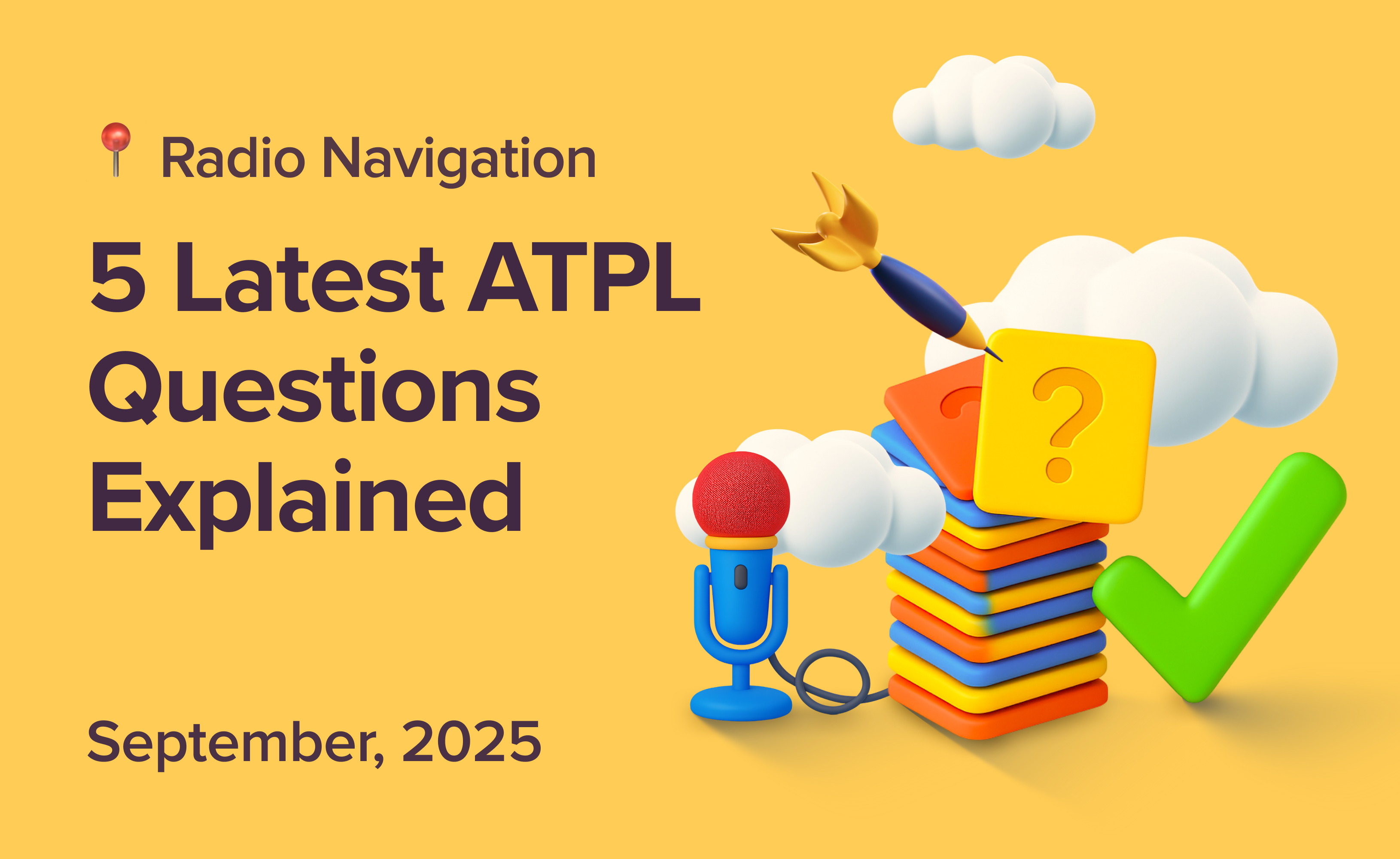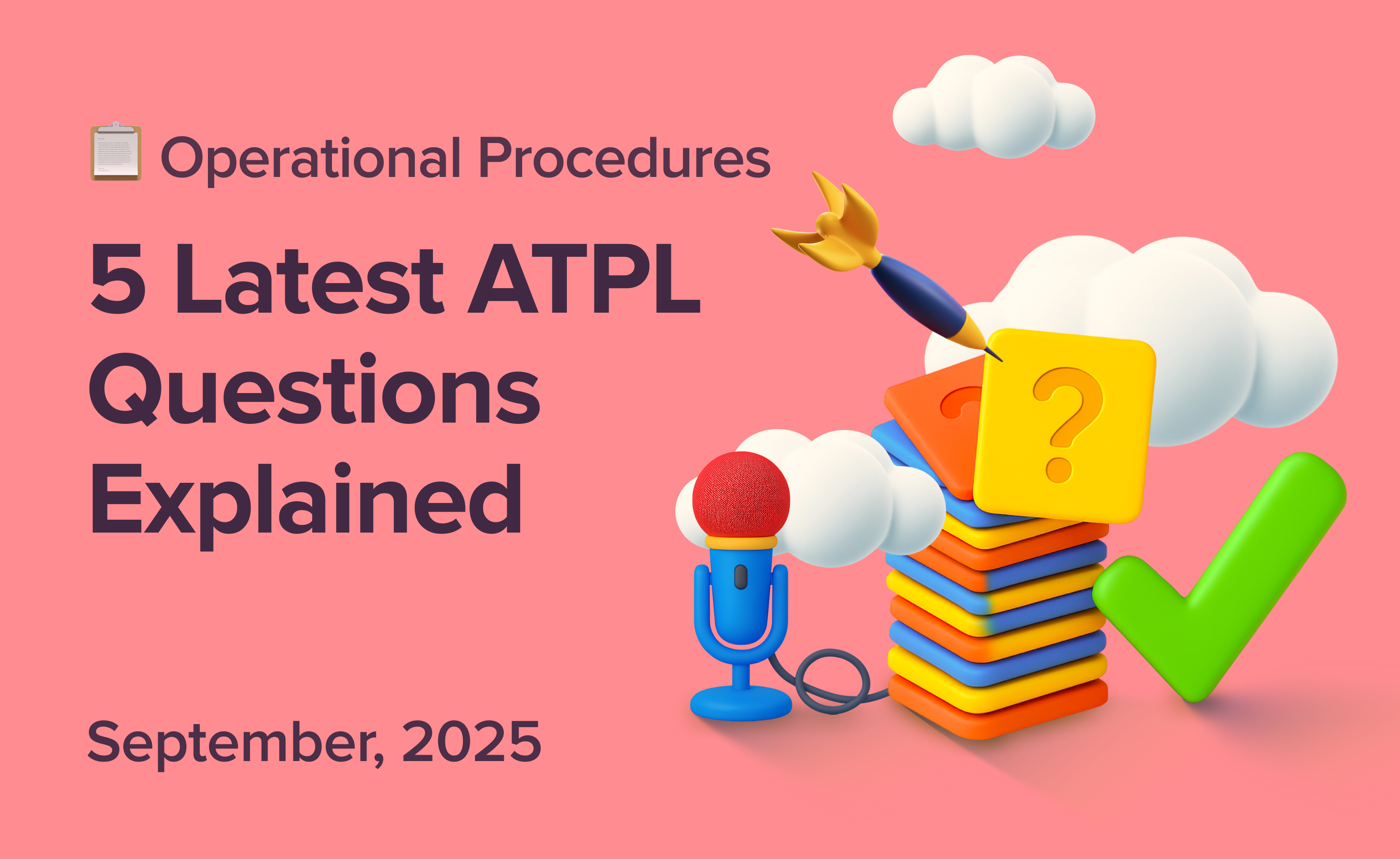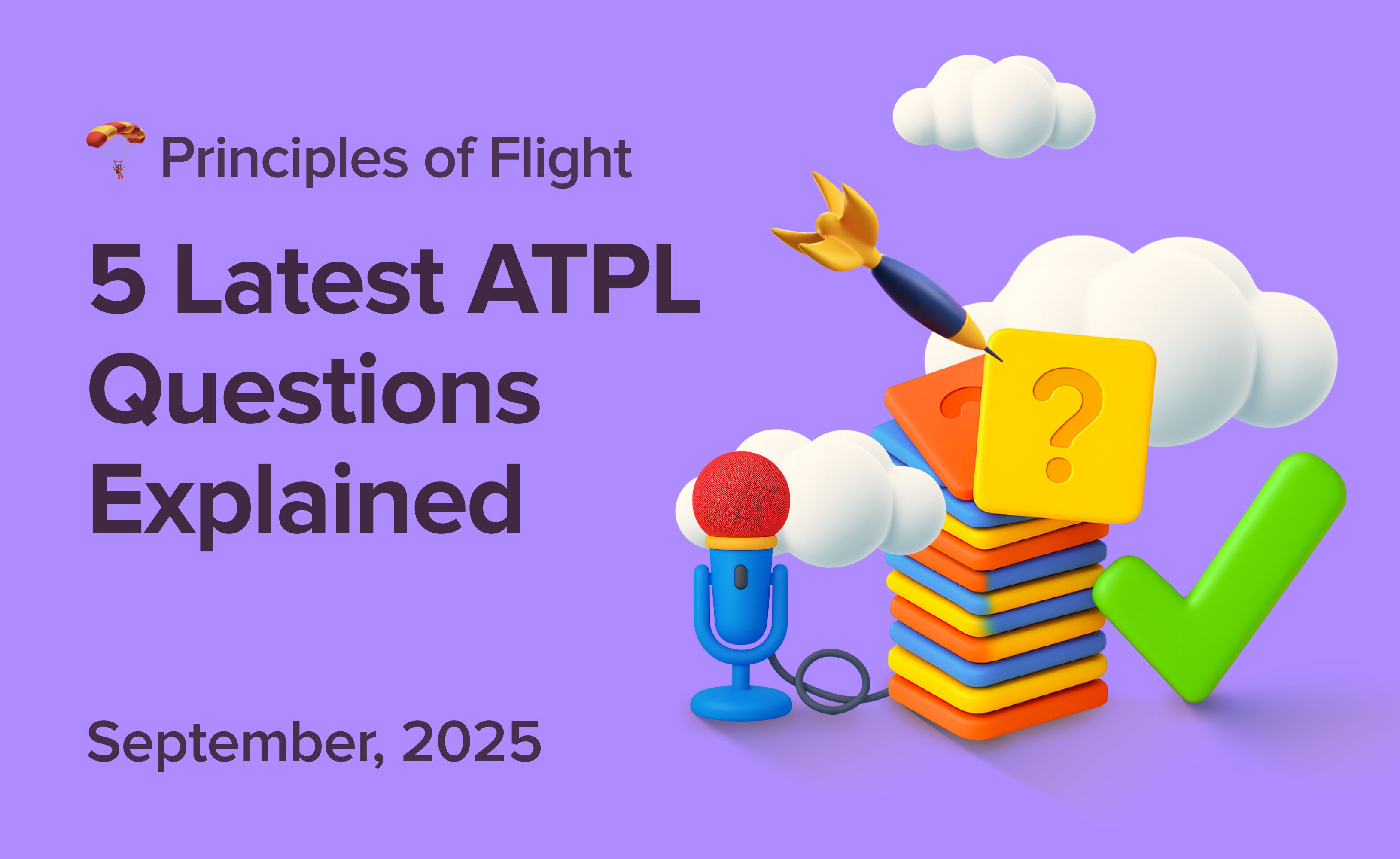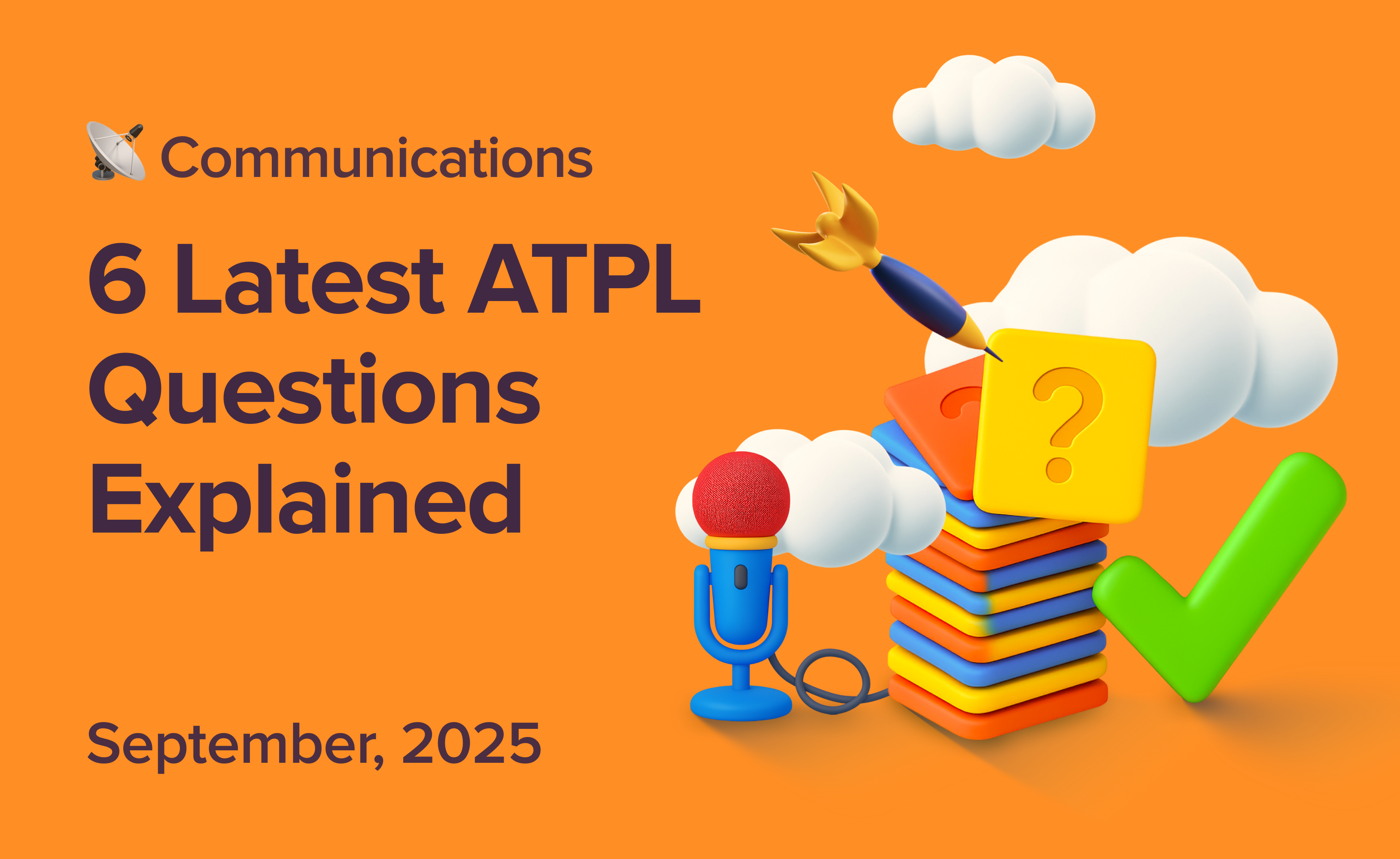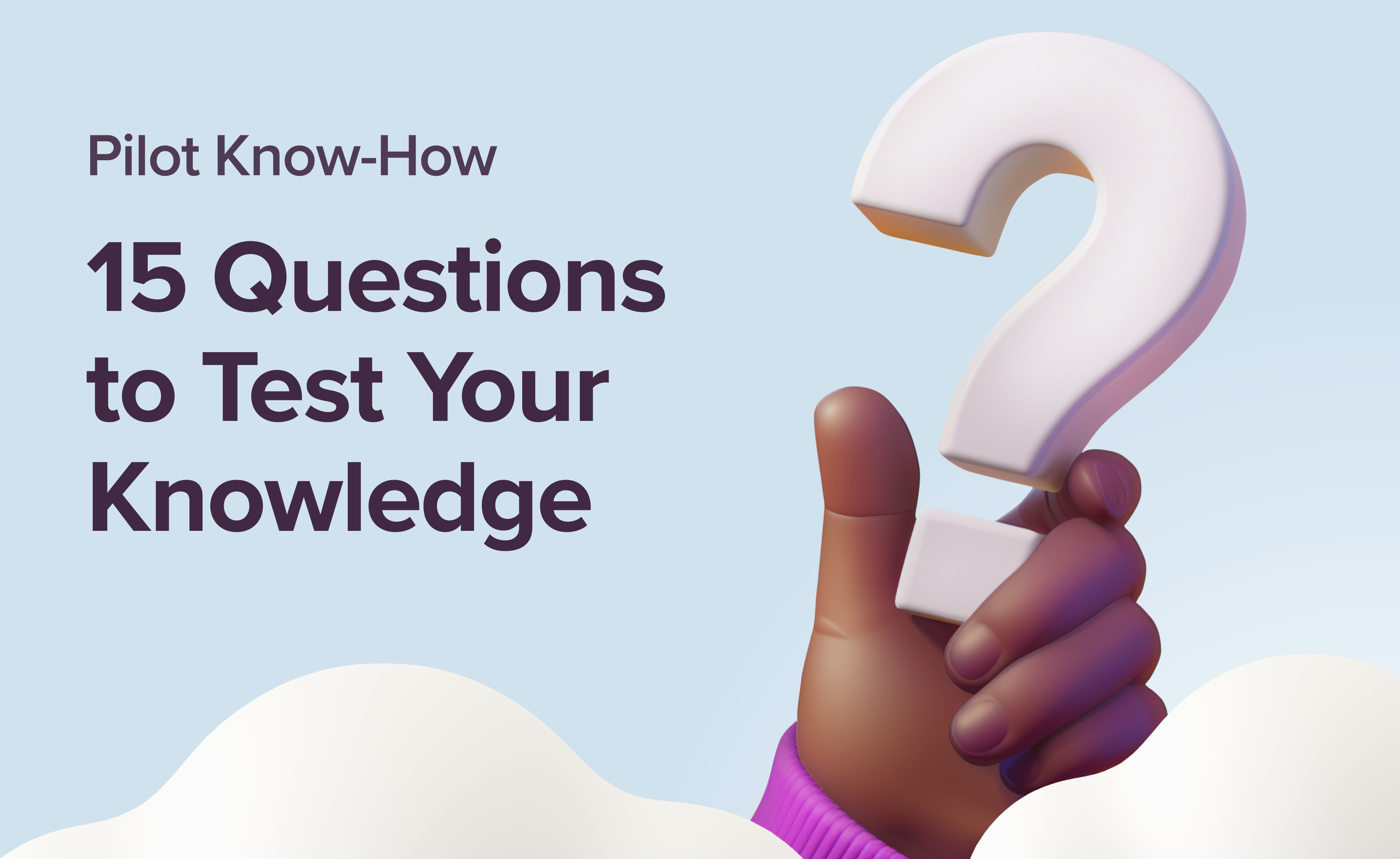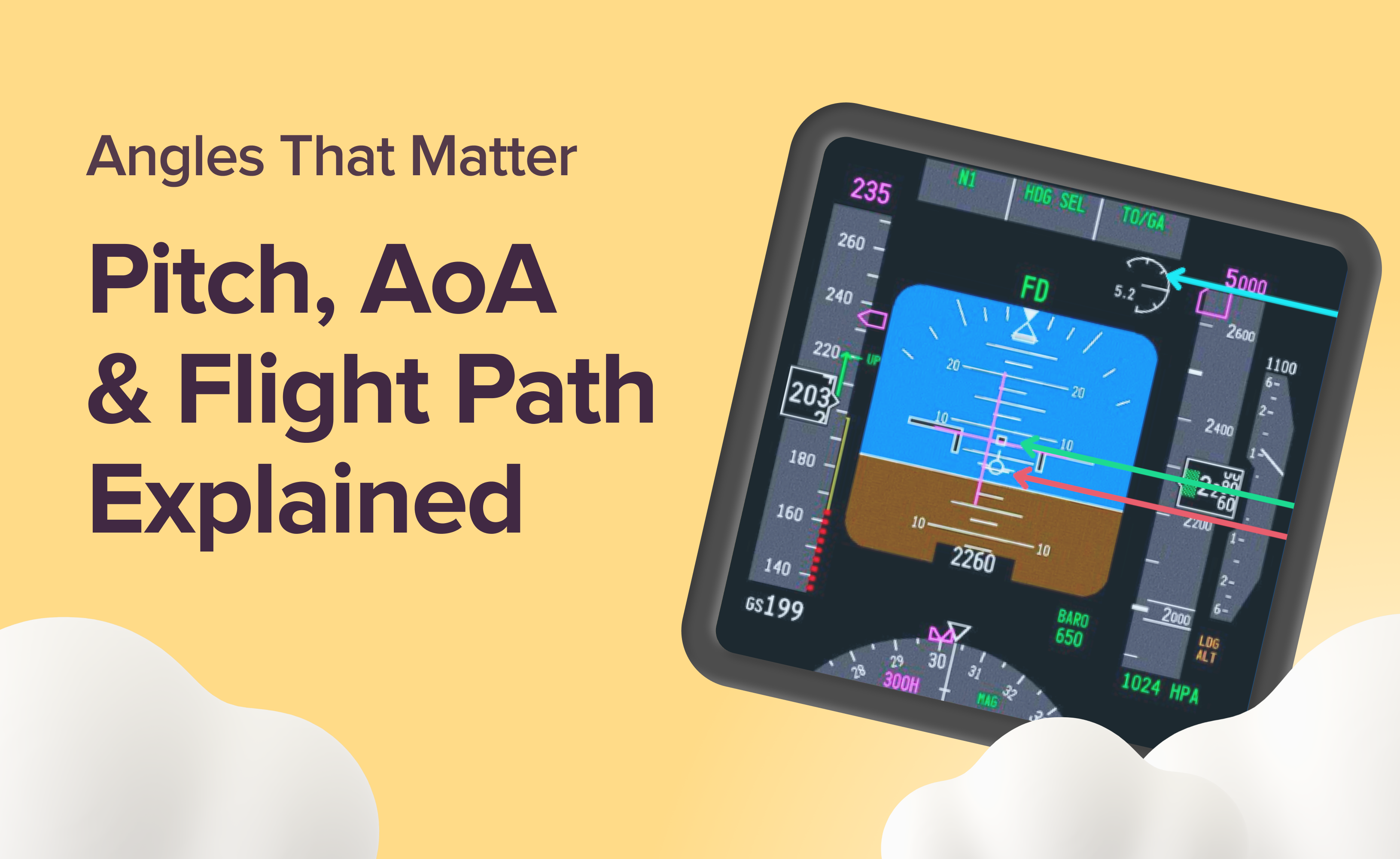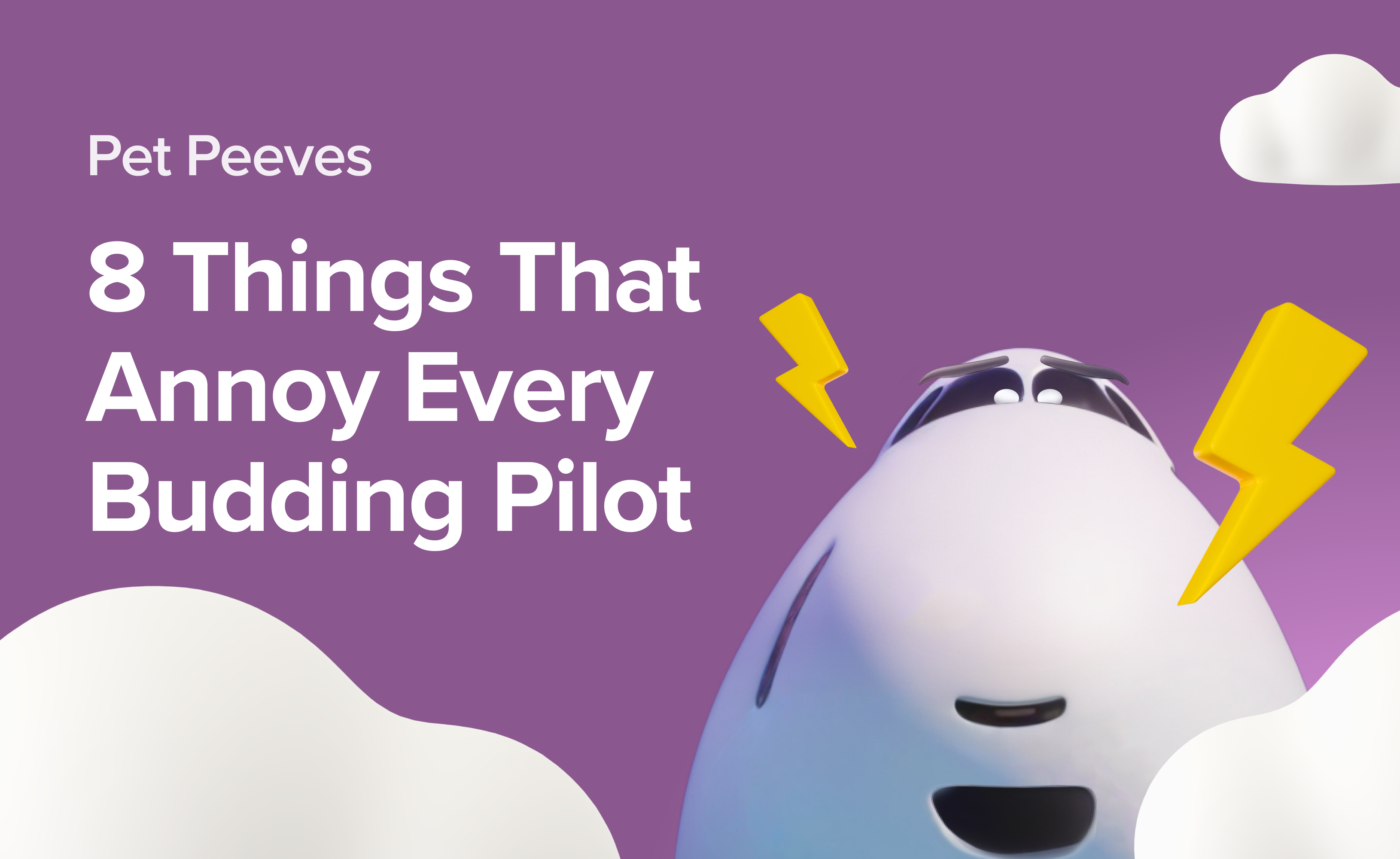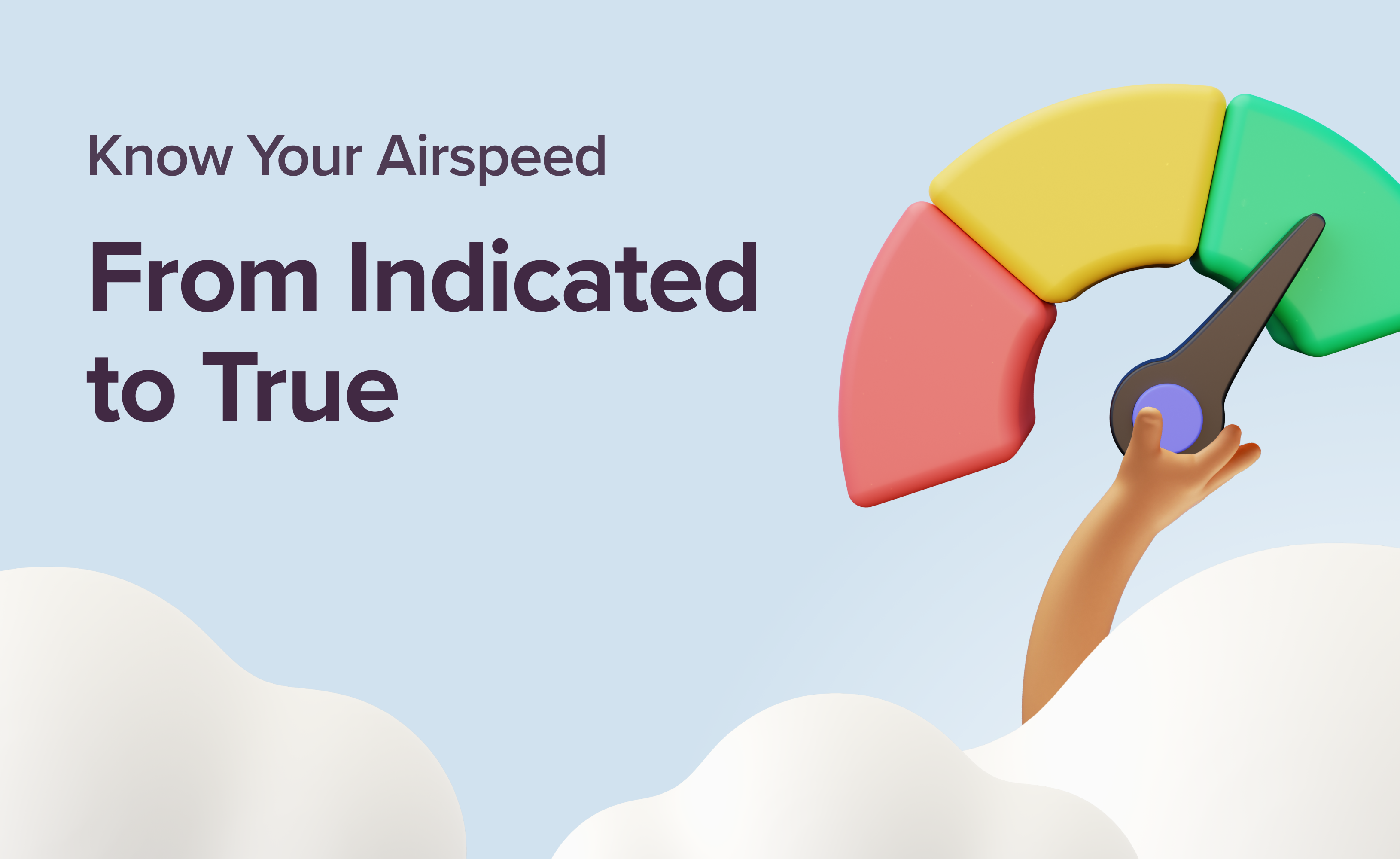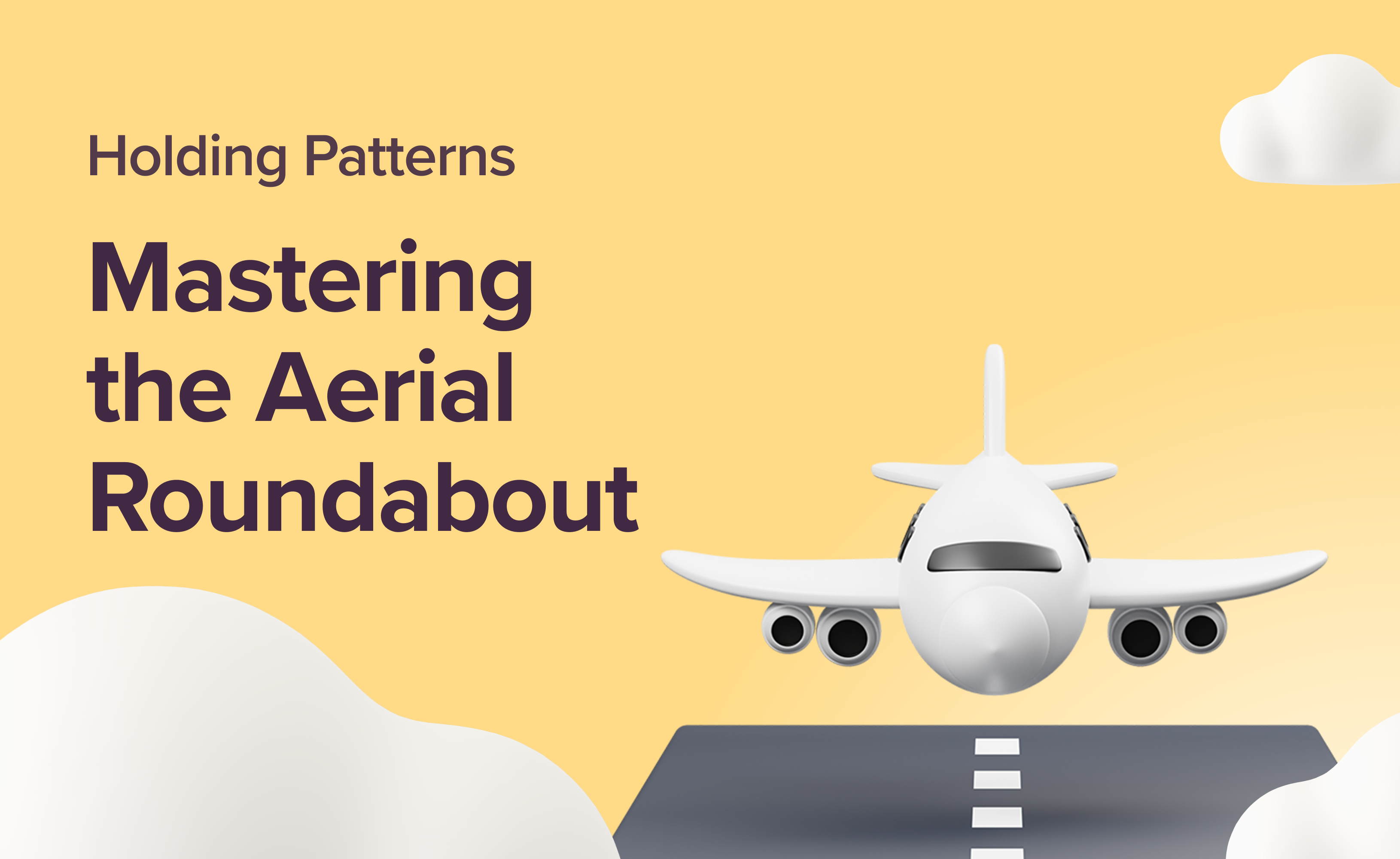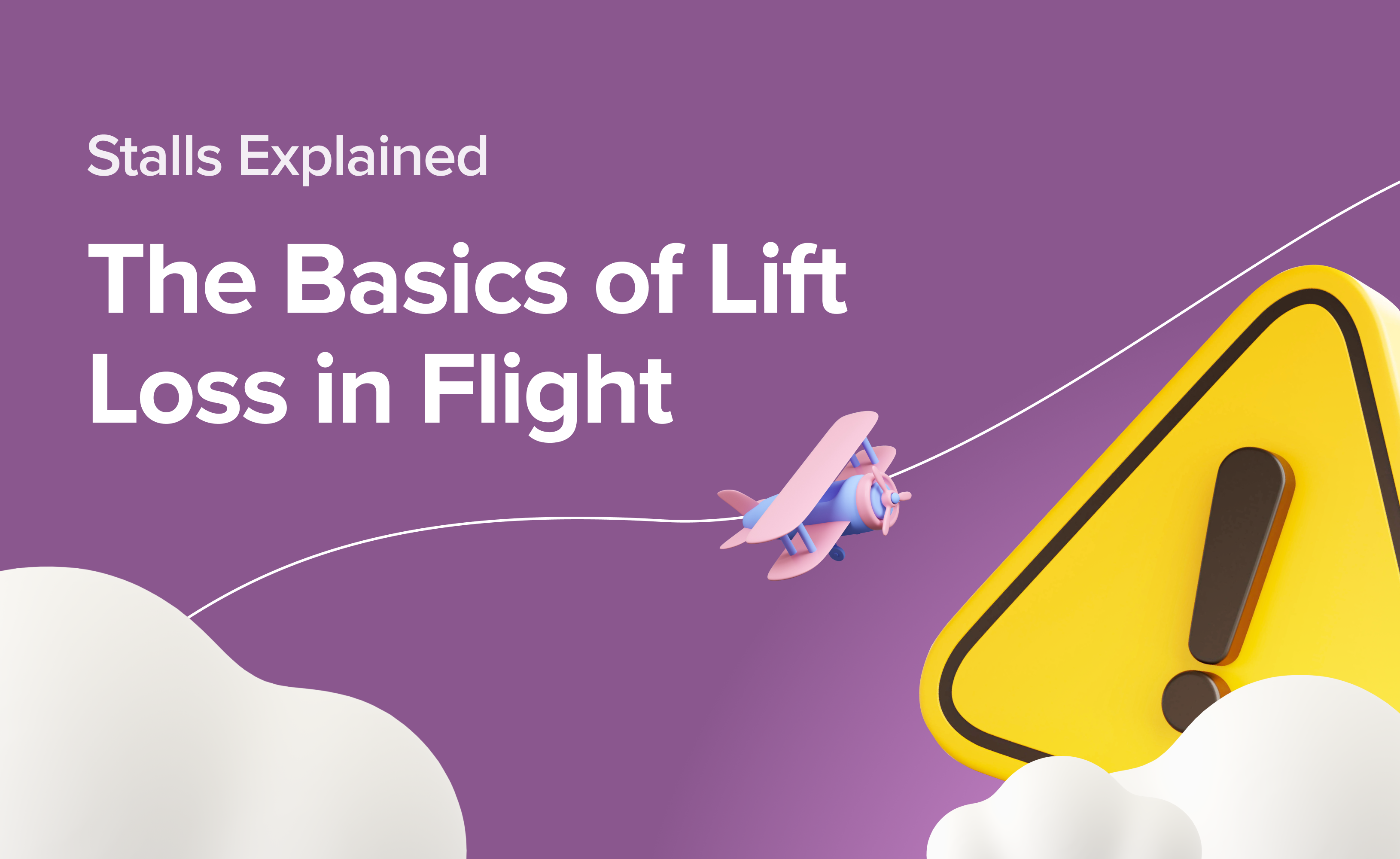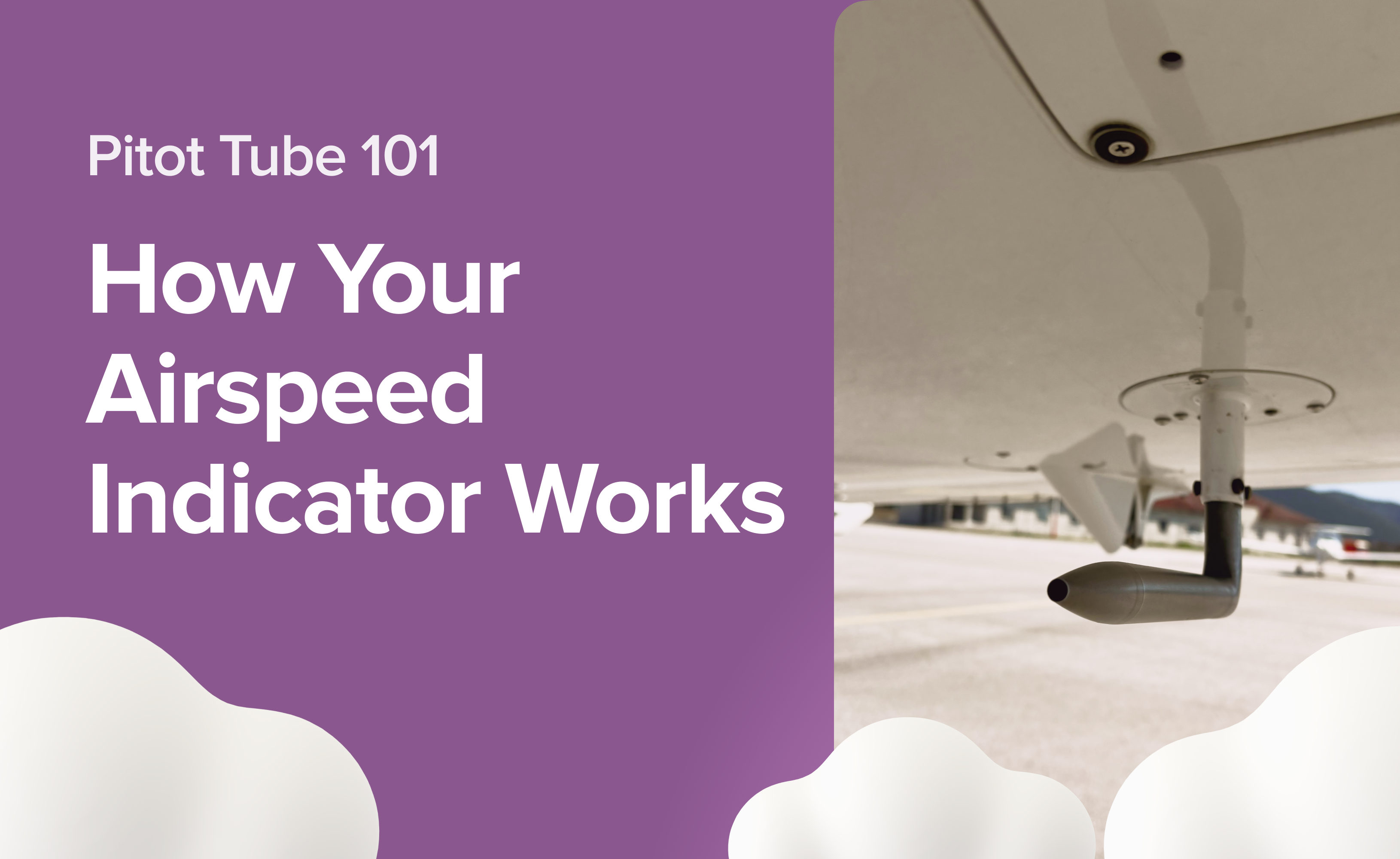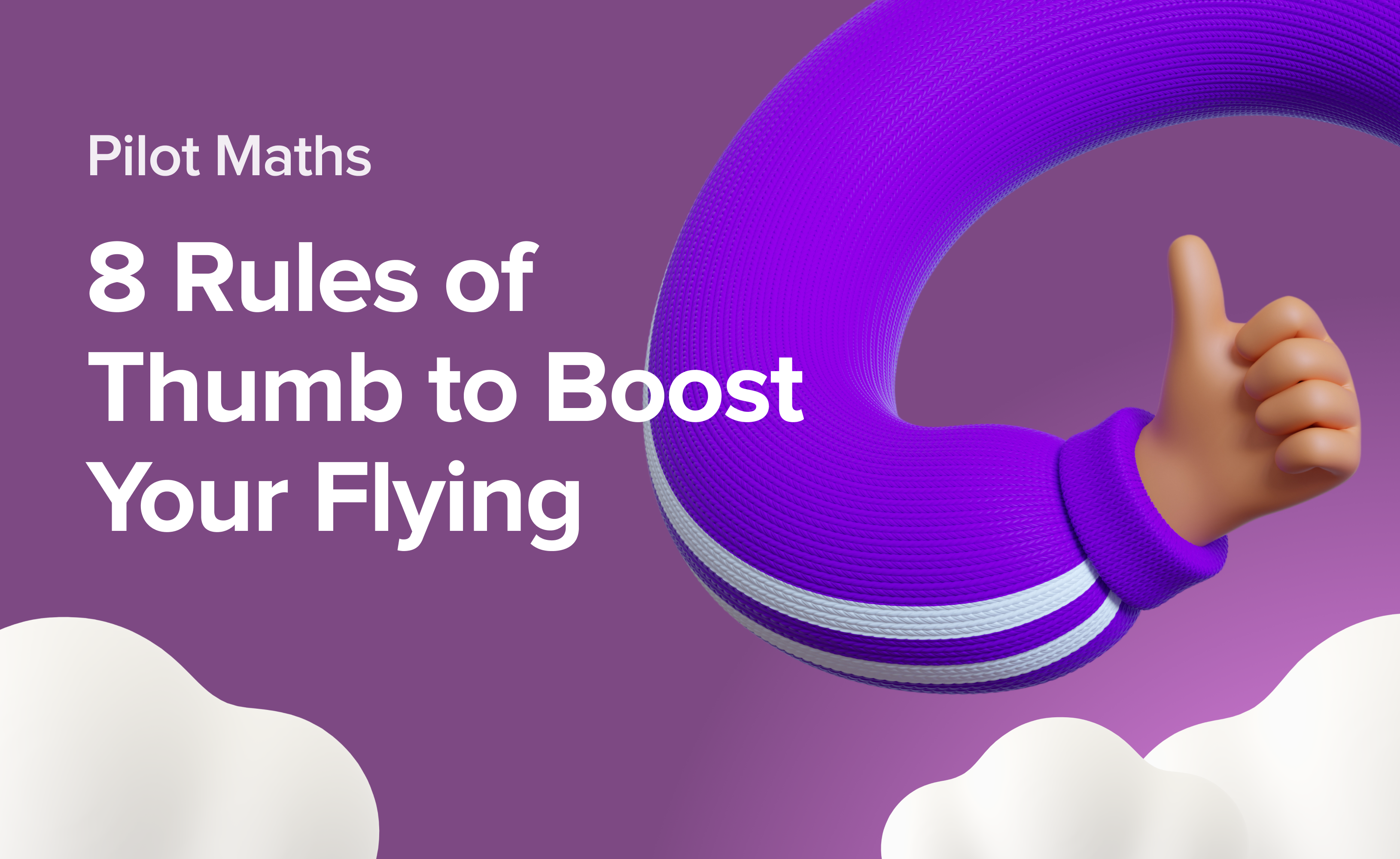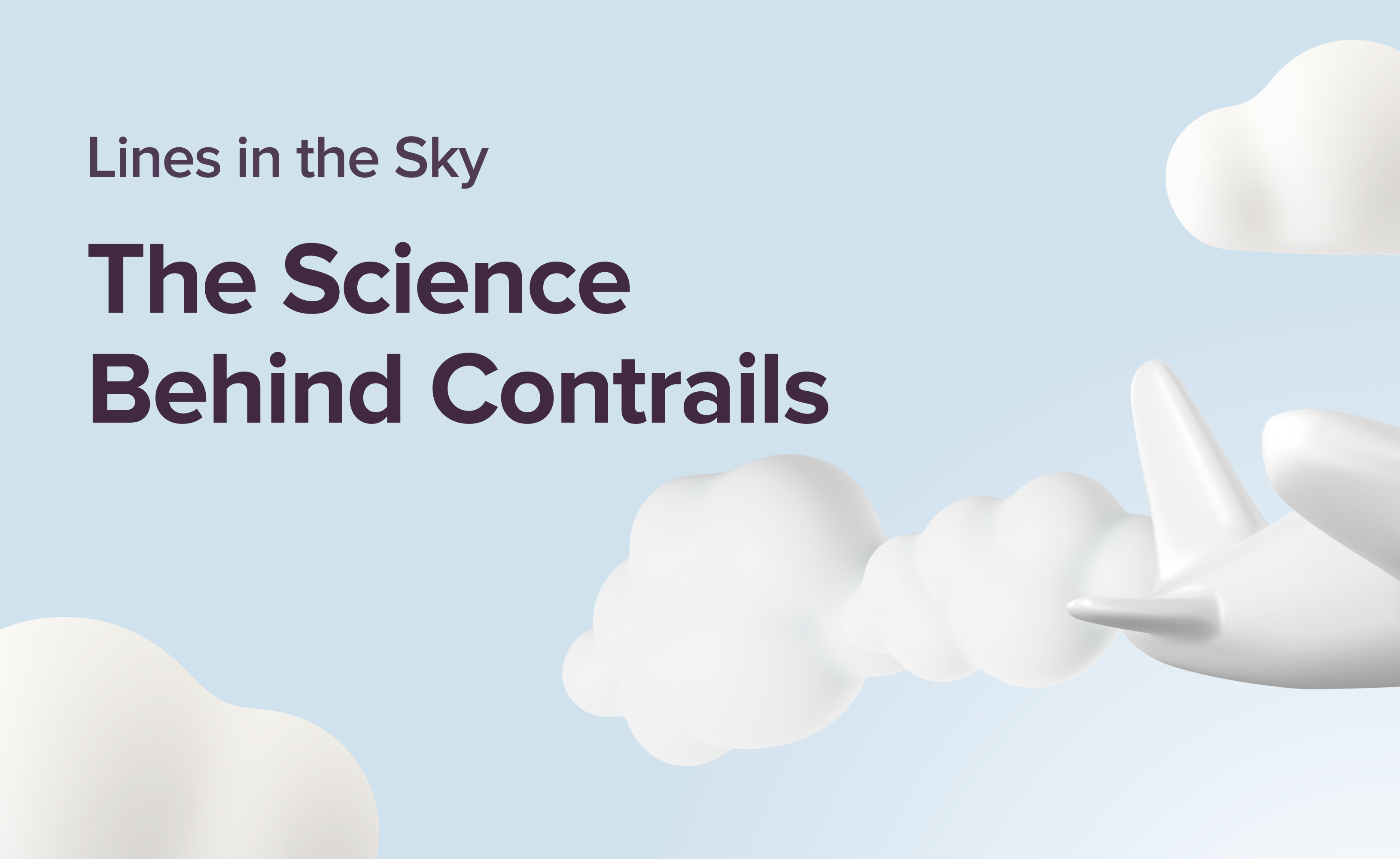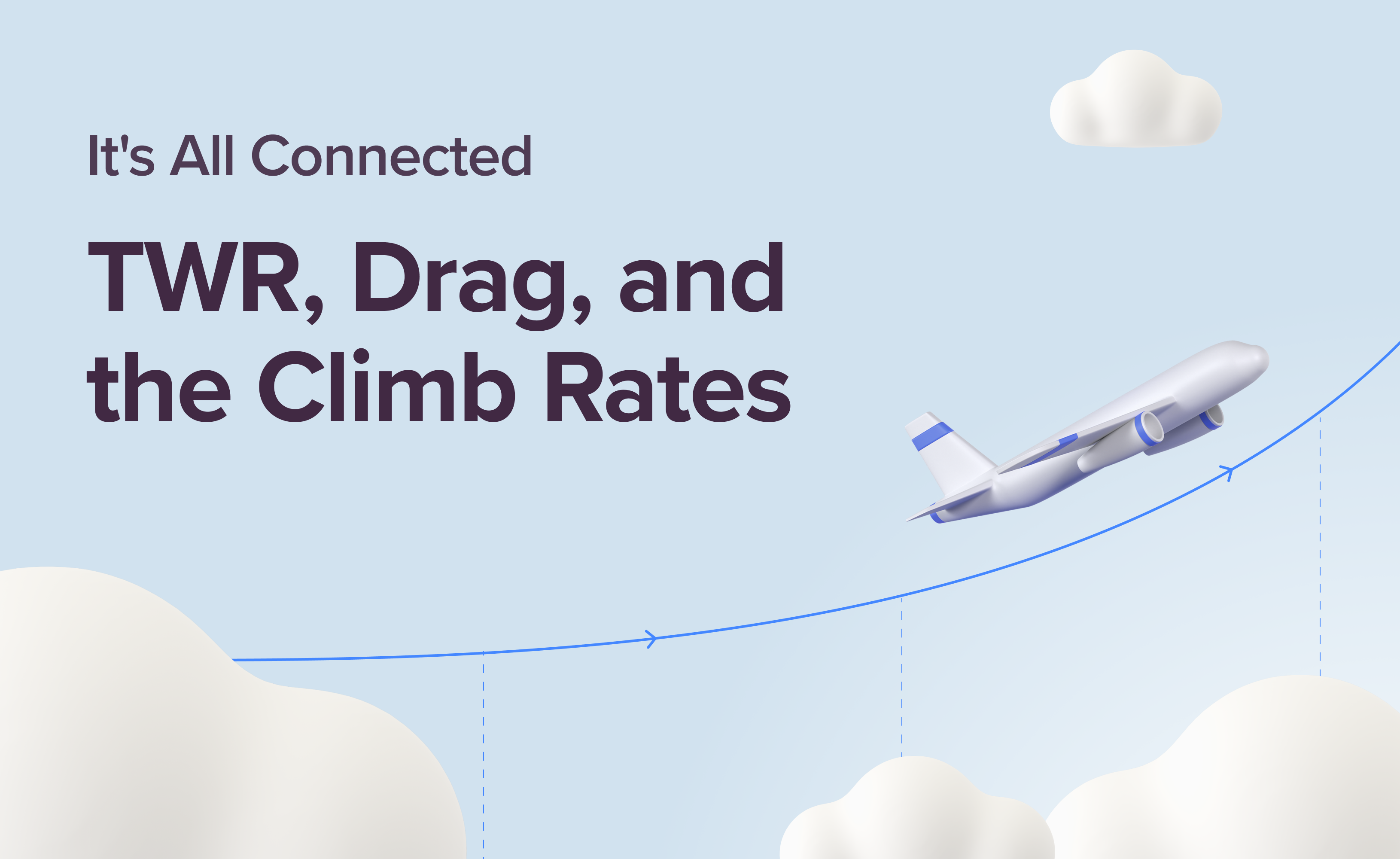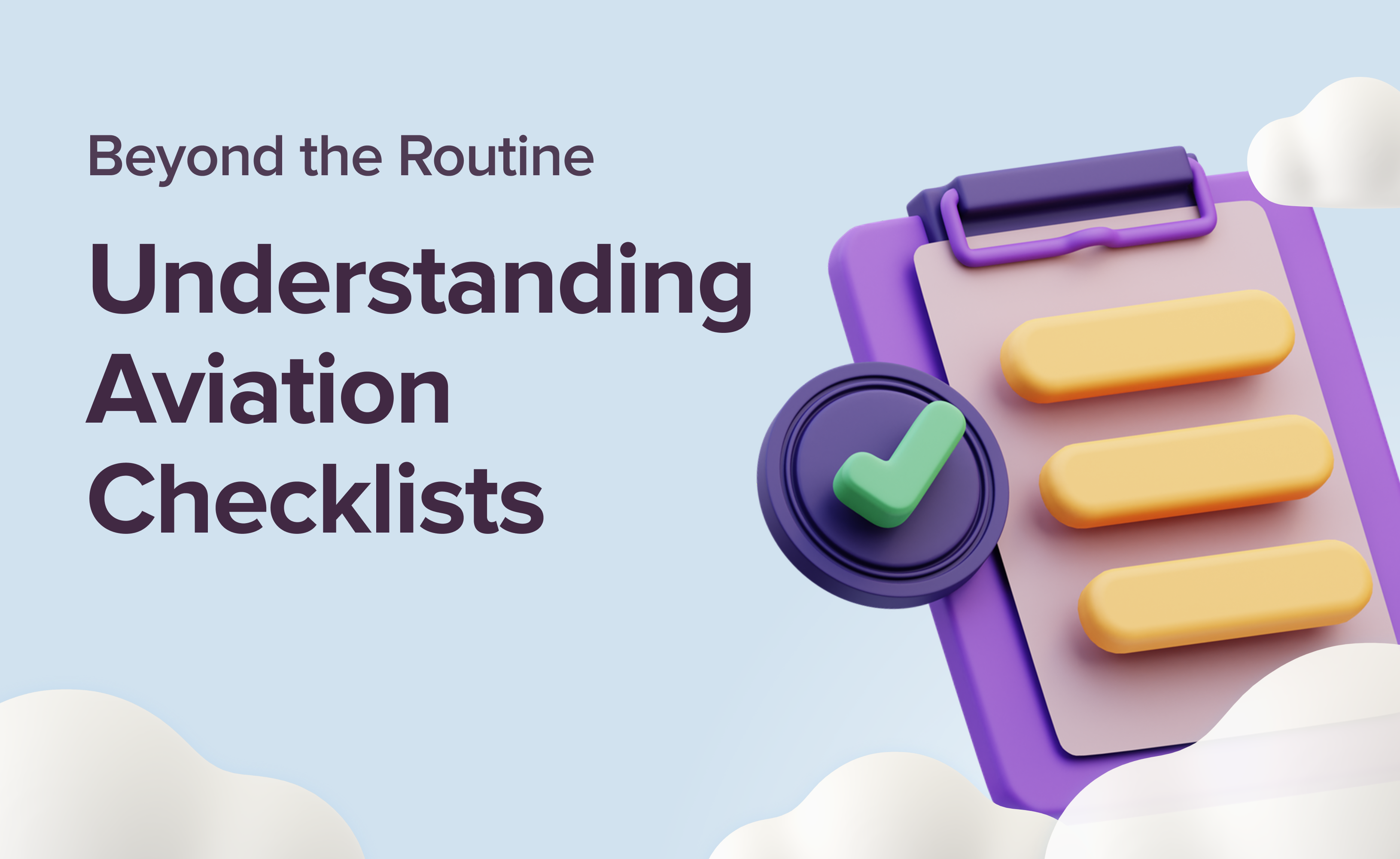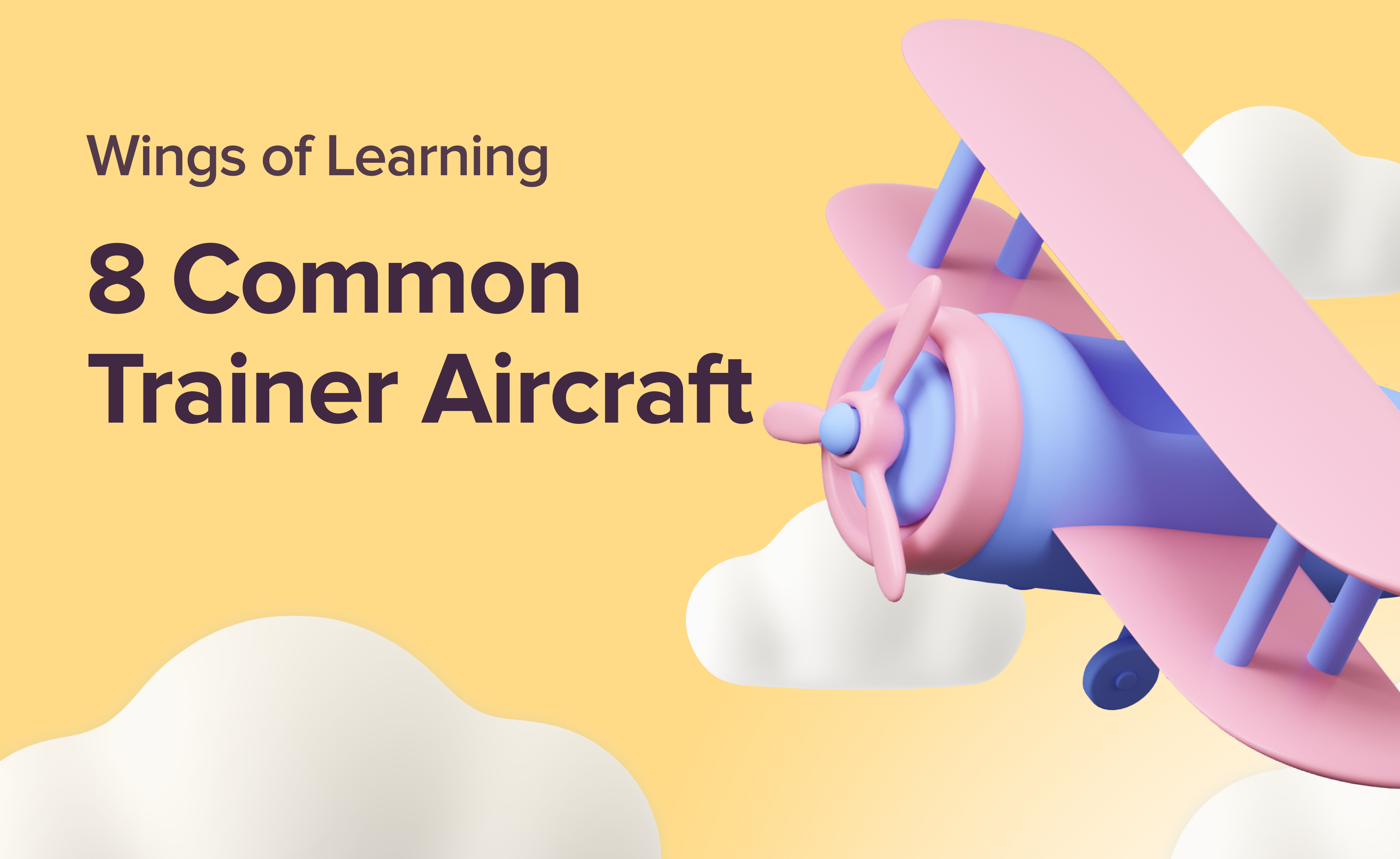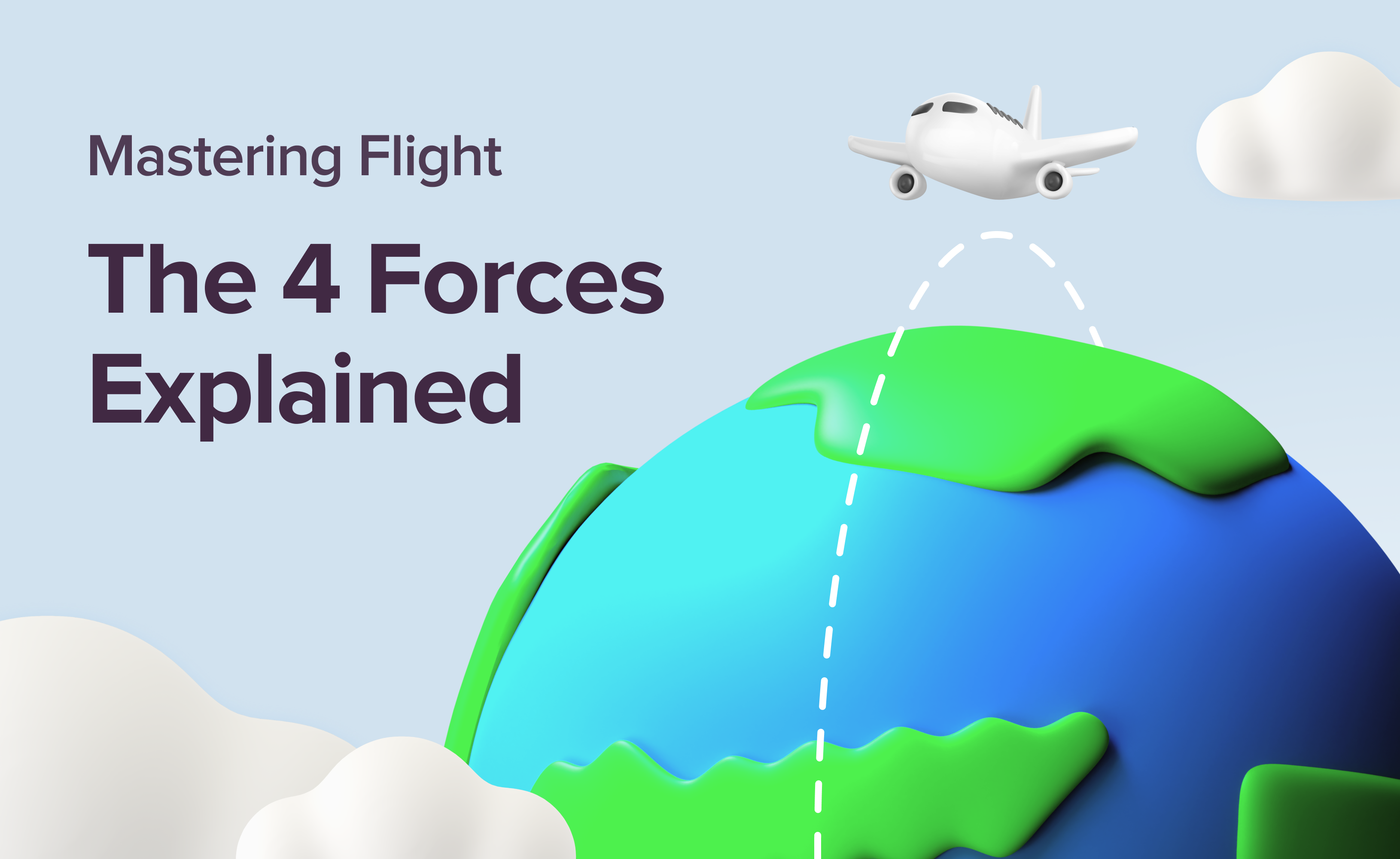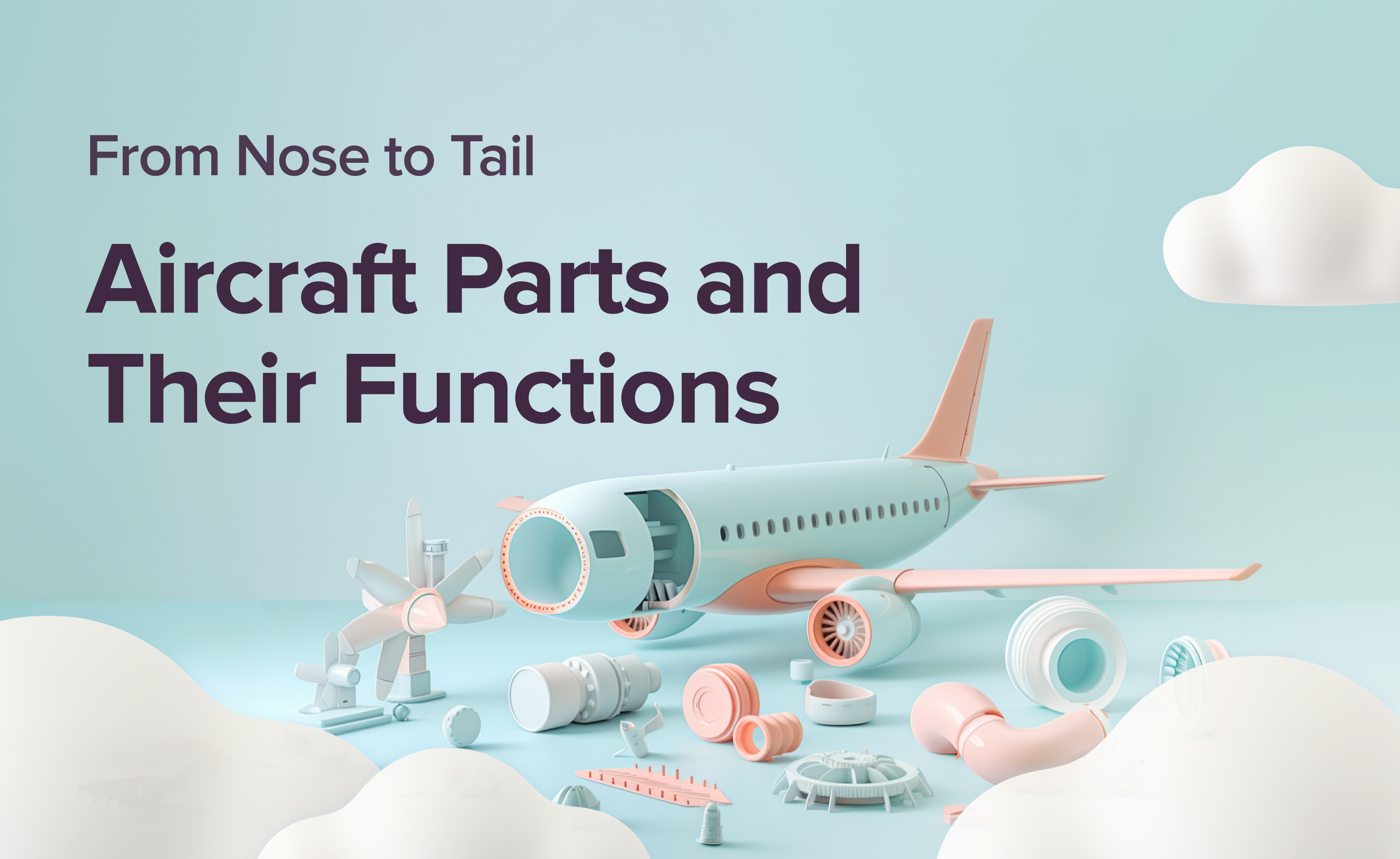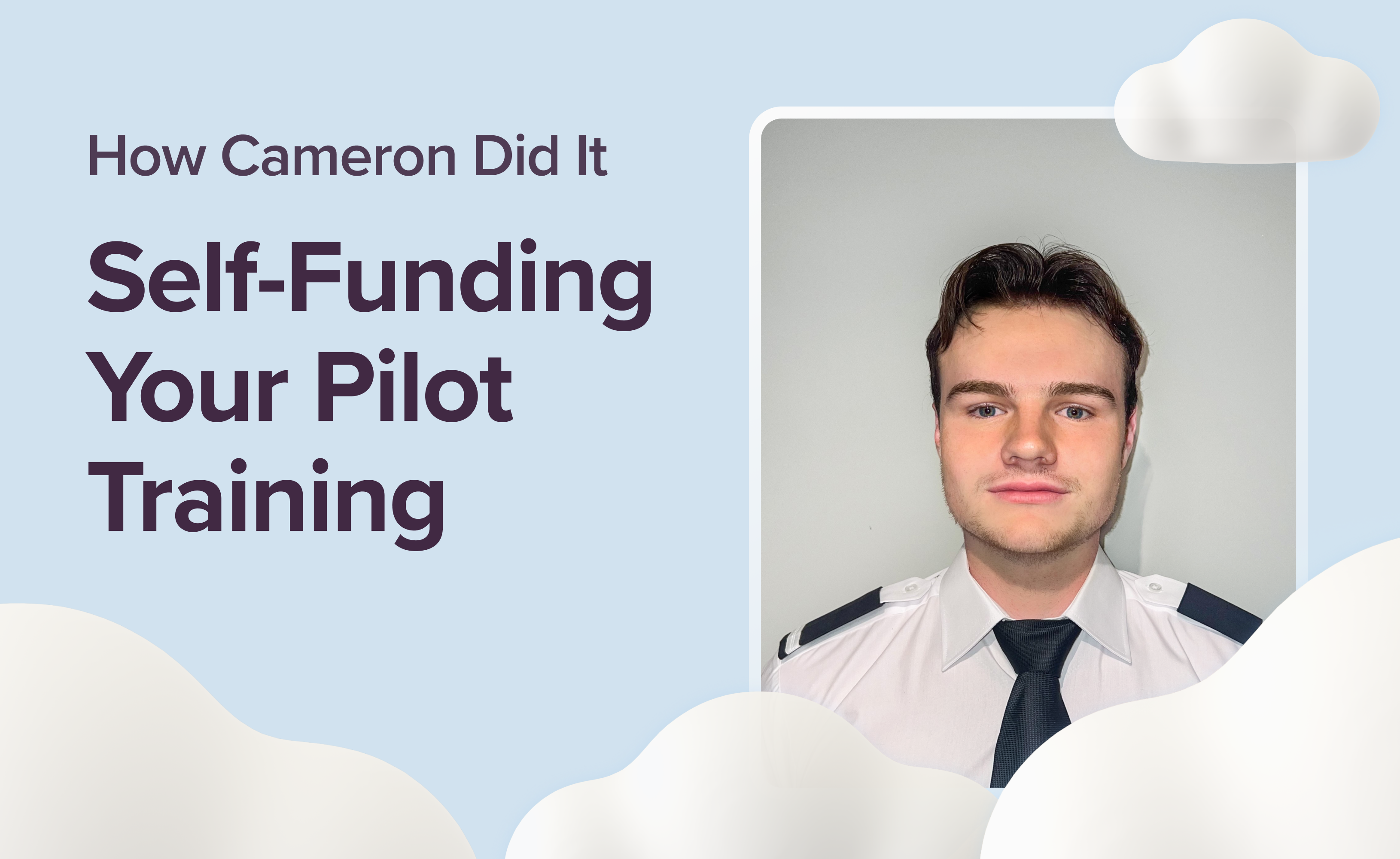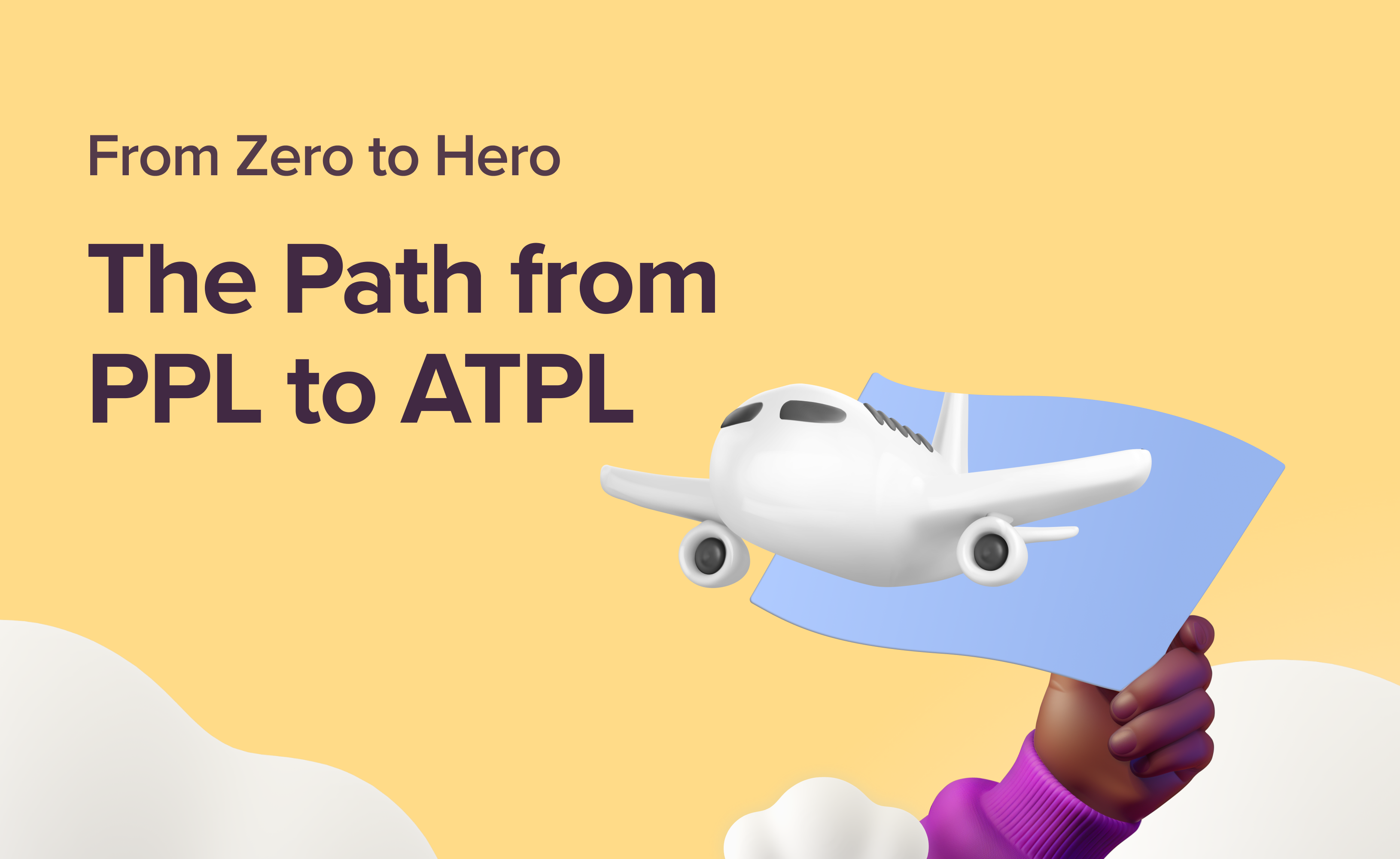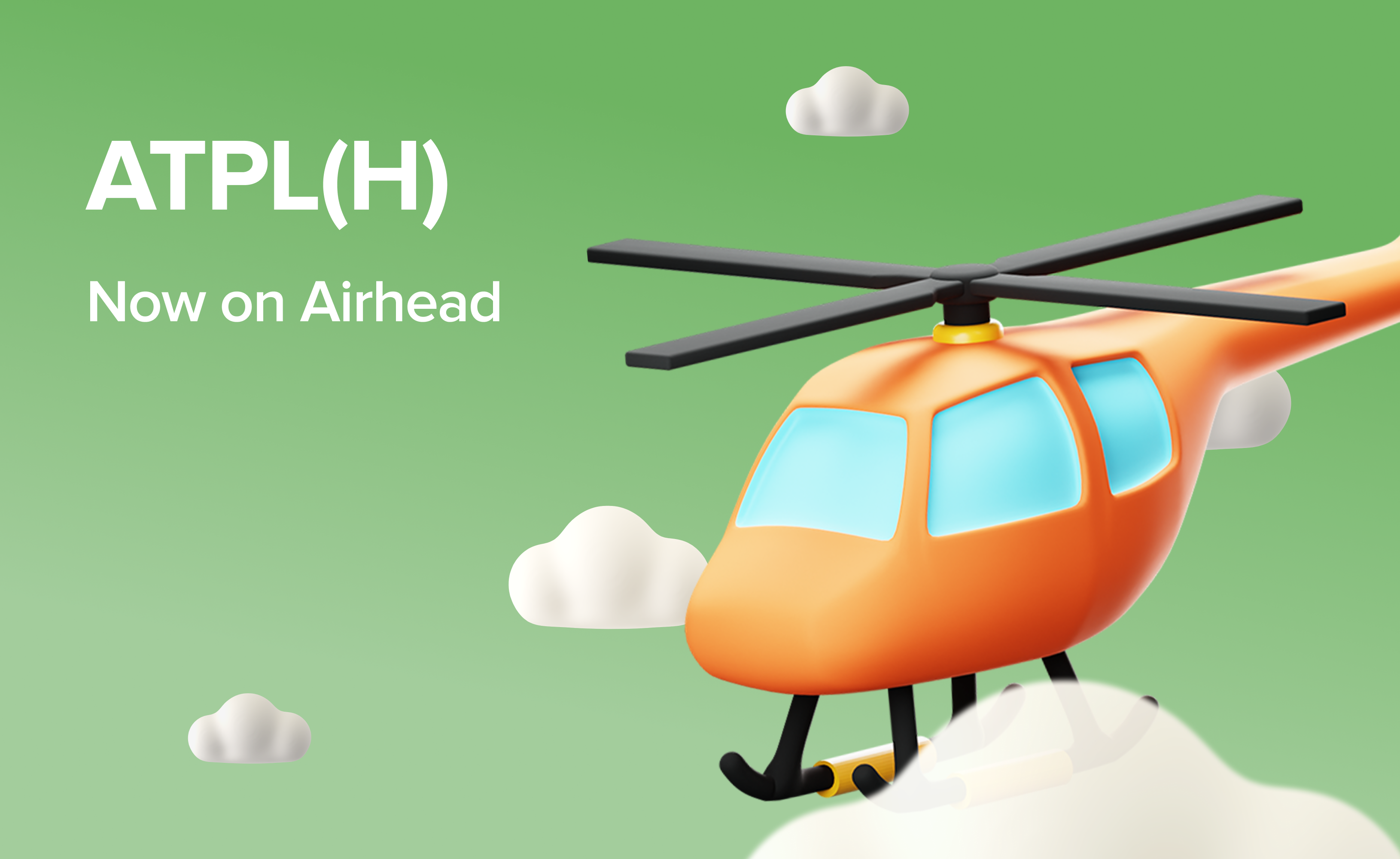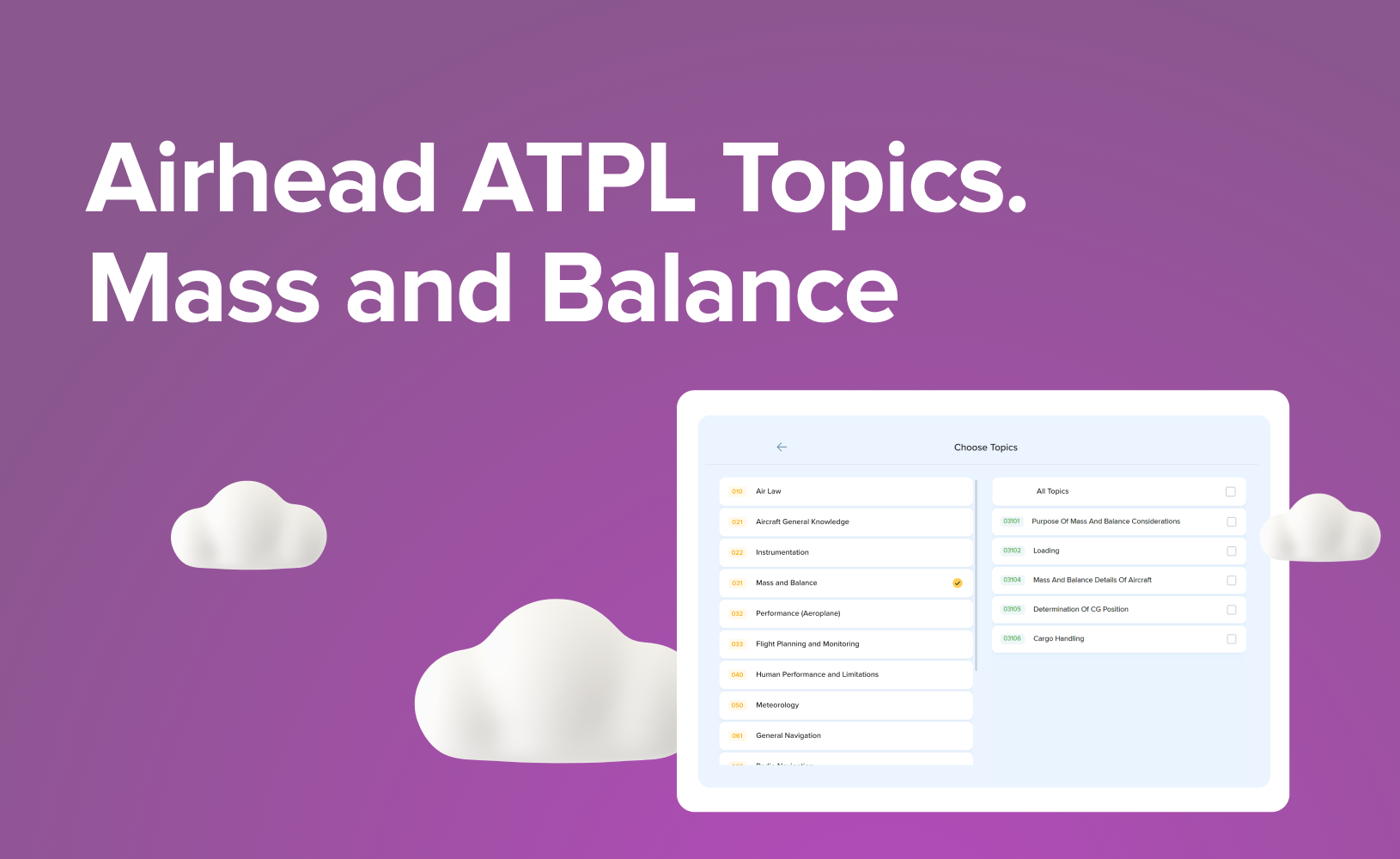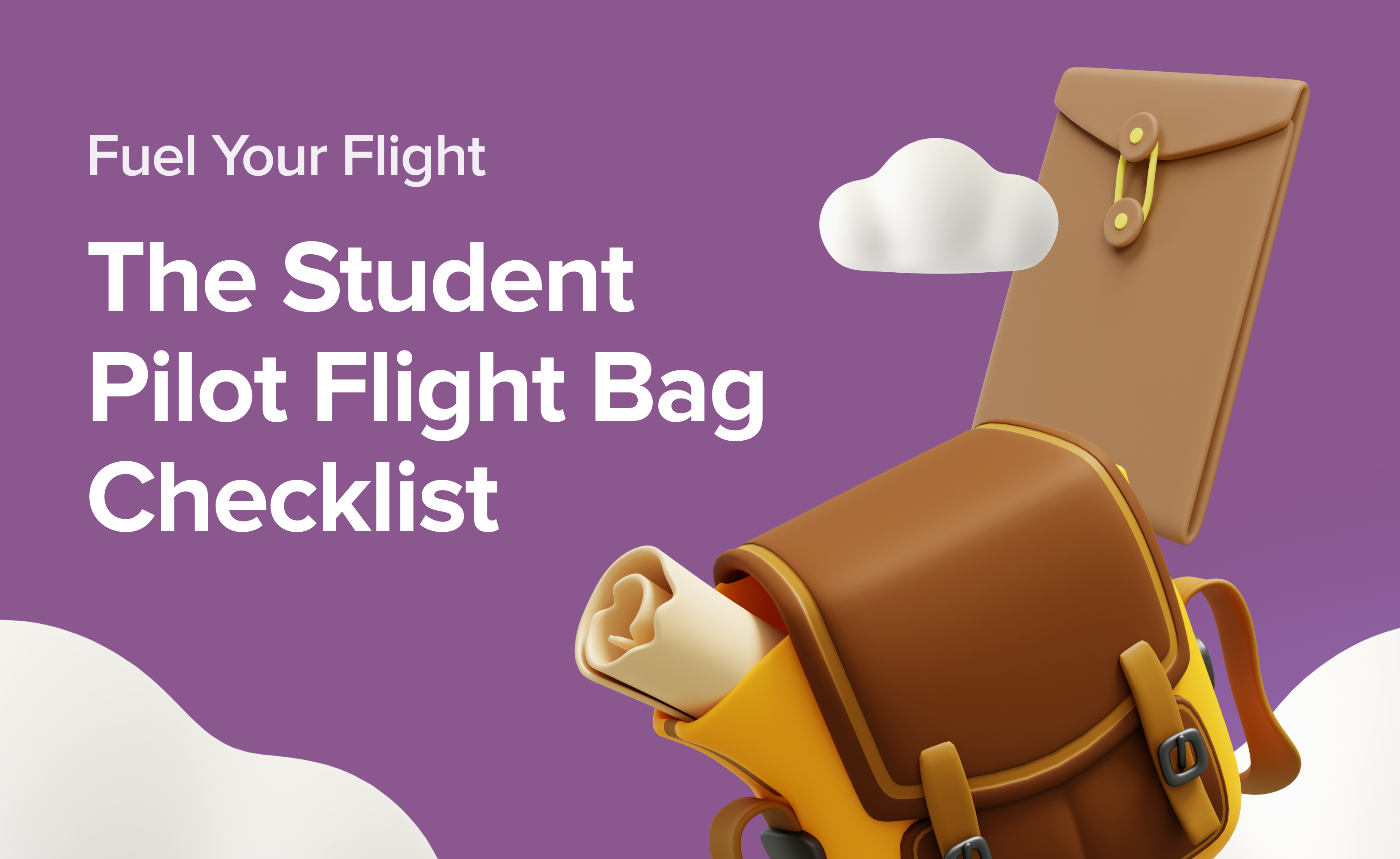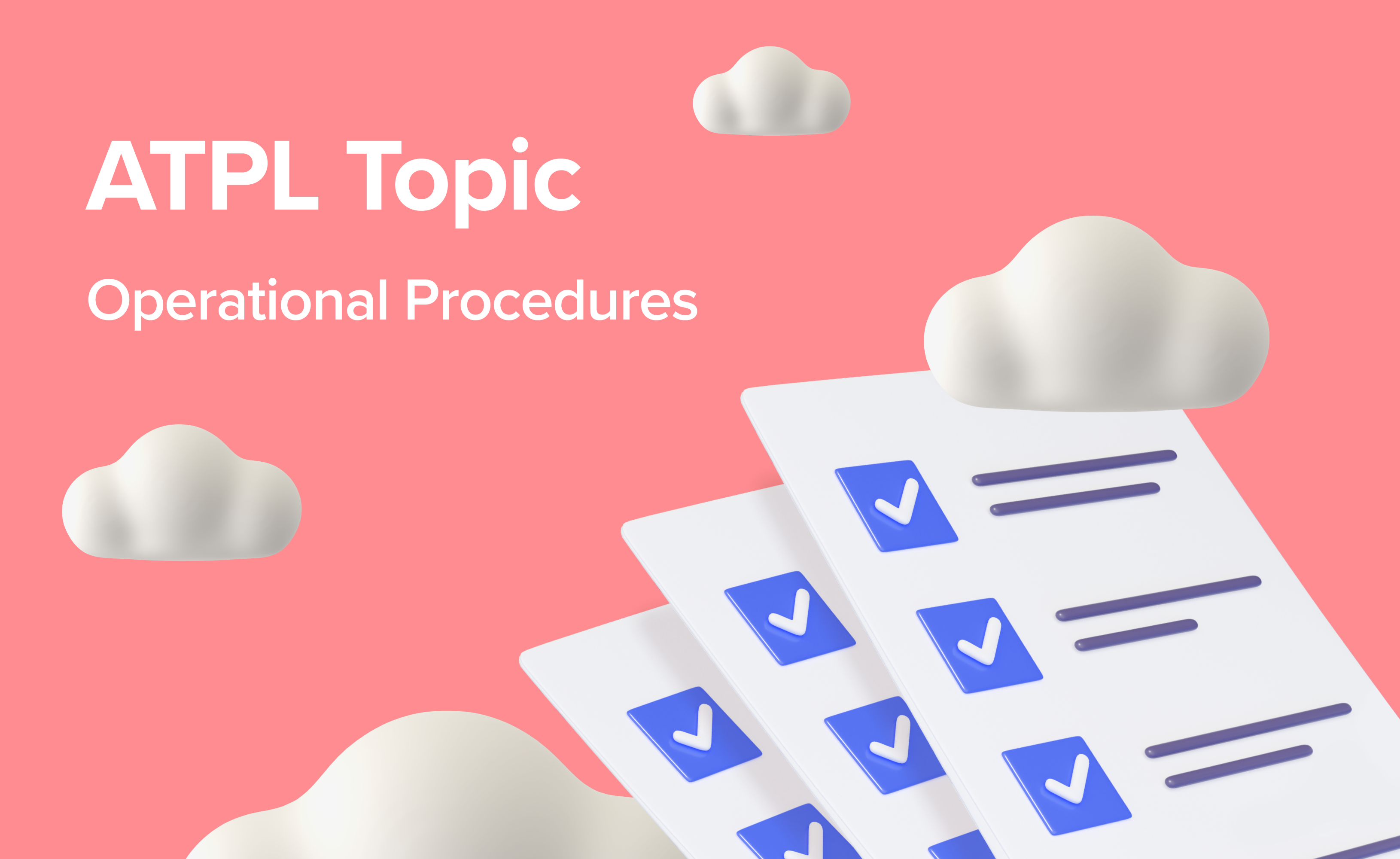Fly Well, Be Well. Prioritising Pilot Mental Wellbeing
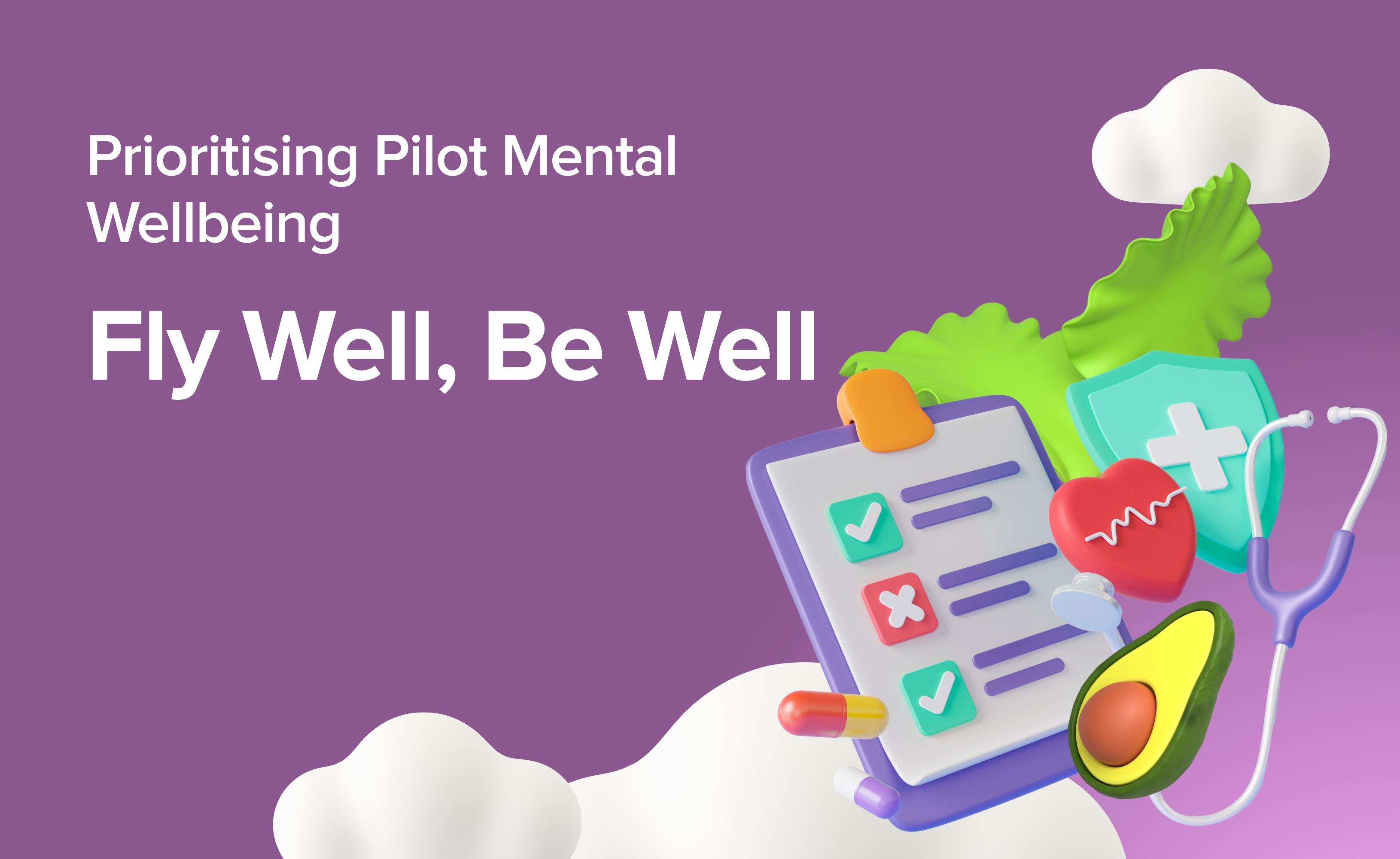
Being a pilot can be amazing, but it also comes with challenges. Long layovers mean you might miss birthdays and holidays. The irregular schedule can wreak havoc on your sleep. The weight of responsibility for hundreds of passengers can feel heavy. Just like the plane you'll one day control, you need to be strong and prepared for anything, including taking care of yourself mentally.
Understanding and paying attention to mental health from a young age is essential for aspiring pilots, as it directly impacts flight safety and personal resilience. The more you focus on self-care now, yet being a student, the happier and healthier you'll be throughout your flying career as a commercial airline pilot. In this article, we'll explore the challenges aviation workers face, the benefits of maintaining mental well-being, and the strategies you can use to keep your mental health soaring. It's time to navigate the conversation towards a more holistic approach to pilot wellbeing in the aviation industry. So, shall we start?
Why Mental Health Matters in Aviation?
Mental health encompasses our cognitive, behavioural, and emotional well-being, influencing how we think, feel, and act. For pilots, maintaining good mental health isn't just about feeling good – it's directly tied to flight safety. Unlike other professions, a pilot's mental state can significantly impact the lives of everyone on board. For aviation workers, it is all about ensuring the safety of passengers and crew.
The very inclusion of Human Performance and Limitations (ATPL) in the pilot training curriculum underscores the critical link between the pilot's mental health and professional performance. Poor mental health can lead to errors in judgement, reduced ability to handle emergencies, and ultimately, compromised safety.
Mental Health Assessment
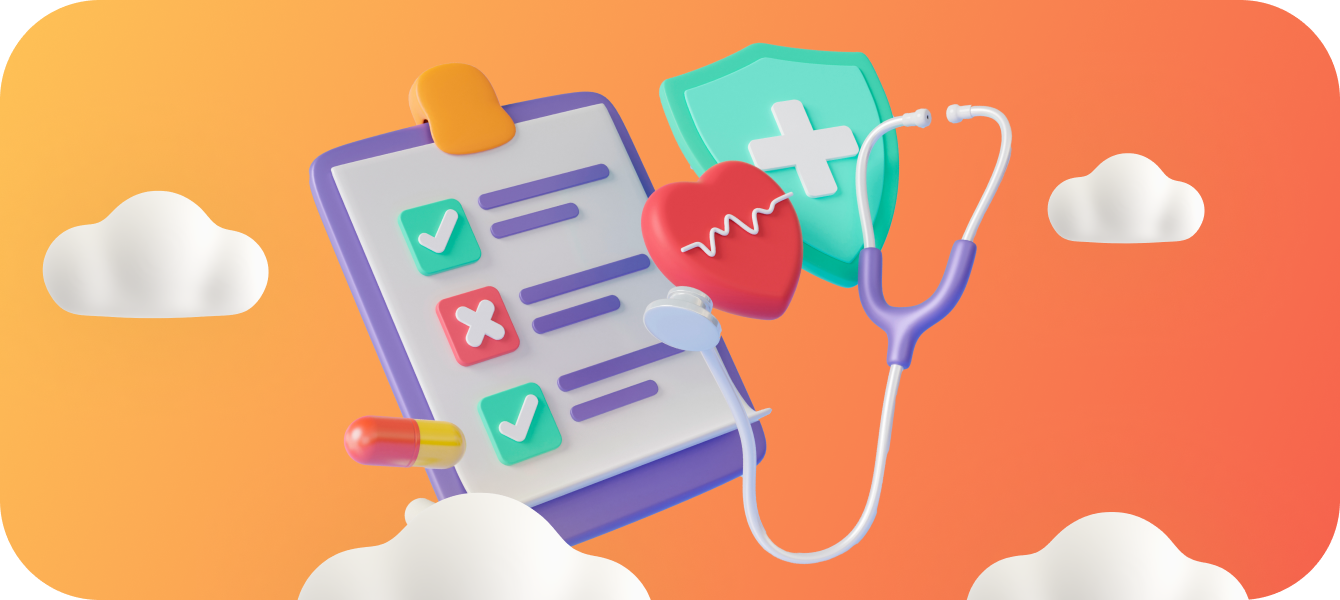
The International Civil Aviation Organisation (ICAO) sets medical examination standards including mental health evaluations. Specific requirements can vary by country, but generally, aviation authorities like the FAA in the United States, EASA in Europe, and the CAA in the UK have guidelines that include psychological assessments as part of their medical certification process.
Besides, every pilot student needs to obtain a Class 1 medical certificate to ensure they meet the highest medical standards necessary for commercial pilot training. It goes beyond basic health checks, evaluating your physical fitness through vision, hearing, and cardiovascular tests. Additionally, the medical examiner will review your mental health history, including any past or present conditions, treatments, or medications. They might not administer a formal psychological assessment, but a series of questions will assess your cognitive function, stress levels, and overall mental state.
The examiner will also be looking for signs of anxiety, depression, substance abuse, or other mental health concerns that could affect your judgement and decision-making in the air. They also may ask about your mood, sleep patterns, and how you handle stress. Throughout the examination, the doctor will observe your behaviour, emotional state, and general demeanour.
Mental Health Concerns Among Pilots
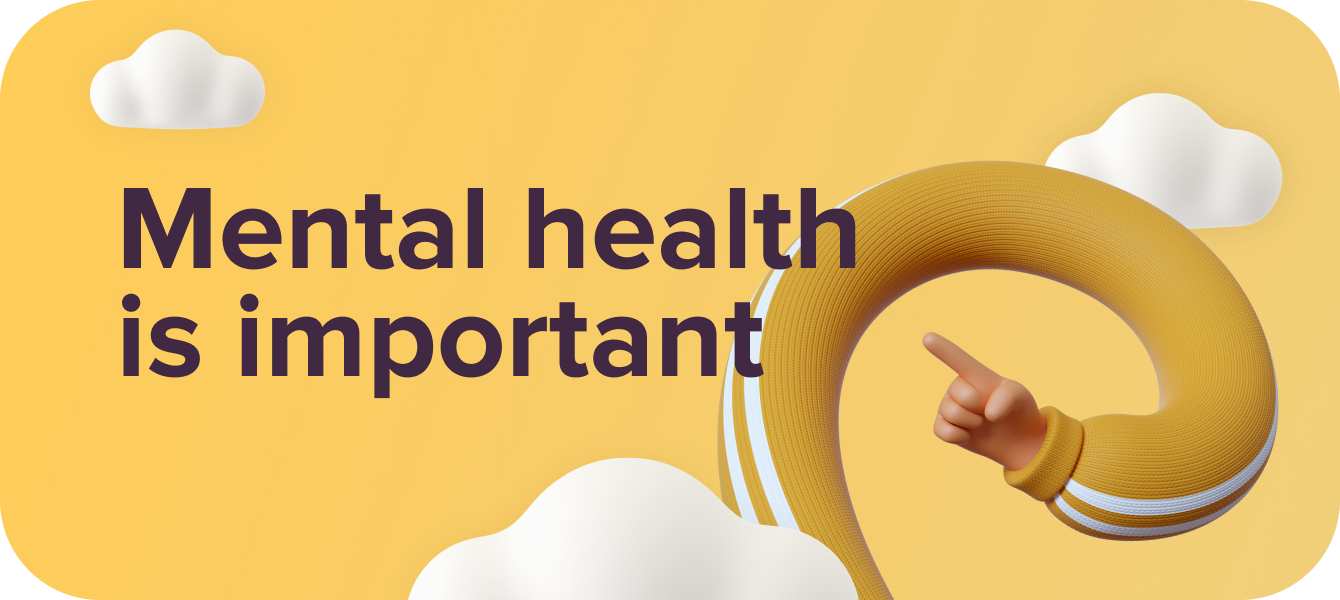
Public health studies suggest a concerning trend – a significant portion of pilots experience mental health issues like depression, anxiety, and stress. A recent study by Trinity College Dublin revealed that even the most resilient pilots face work-related stress. While the exact numbers are unknown, the potential negative impact on flight safety is undeniable.
A 2012 survey of over 700 airline pilots revealed that more than half (54%) reported feeling depressed or anxious, while a staggering 78% described experiencing burnout or exhaustion.
Further research from Harvard University in 2016 found even more concerning figures. Within a two-week period, 12% of the 1,800 pilots surveyed exhibited symptoms consistent with clinical depression.
A key contributor to this issue is the stigma surrounding mental health help in the aviation industry. Nearly 60% of pilots in the study avoided seeking professional help due to fears of losing their medical licences and jeopardising their careers.
This highlights the urgent need for a shift in perspective. Mental health is just as crucial as physical well-being for pilot safety. Addressing this issue requires a combined effort from the industry, pilots themselves, and mental health professionals to create a supportive environment where pilots feel comfortable and safe seeking help without fear of career repercussions.
Common Mental Health Issues Among Pilots

Pilots face unique stressors, including irregular schedules, long hours, and the pressure to perform flawlessly. These demands can negatively impact mental health, leading to several common mental health problems:
Stress and Anxiety
Pilots often experience high levels of stress and anxiety due to the immense responsibility of ensuring passenger safety, navigating complex airspaces, and managing unexpected in-flight situations. Additionally, tight schedules and the need to meet stringent regulatory requirements add to their stress levels. The irregular hours and long shifts can also disrupt their circadian rhythms, leading to chronic stress.
Depression
Many pilots struggle with feelings of loneliness, especially when spending extended periods away from home and loved ones. Pilots often miss significant family events and milestones due to their work schedules, leading to feelings of detachment and sadness. The work-life imbalance, coupled with the pressure to perform at high standards, can contribute to clinical depression.
Substance Abuse
Some aviation workers turn to alcohol or drugs as a way to cope with the high levels of stress and anxiety associated with their job. The airline industry has strict regulations against substance use, but the pressure to manage mental health issues without adequate support can lead to substance abuse as a maladaptive coping mechanism.
Burnout
Continuous exposure to high stress, lack of sufficient rest, and the repetitive nature of flight operations can lead to burnout. Burnout is characterised by emotional exhaustion, cynicism, and a feeling of reduced accomplishment. Pilots experiencing burnout may find it increasingly difficult to stay motivated and engaged with their work, which can impact their performance and overall job satisfaction. The physical and mental fatigue associated with burnout can also lead to increased errors and accidents.
Spotting Potential Mental Health Issues Early

Knowing the early signs of anxiety, depression, or burnout can be crucial. After all, sometimes your copilot might need your help, even if it's not with landing. Here's how to recognise if someone, including yourself, might be battling mental health challenges:
Personality Shifts. Is a usually chatty friend suddenly withdrawn? Maybe a normally calm colleague seems on edge all the time. These changes could be a sign of something going on.
Untypical Behaviour. Increased anxiety, anger outbursts, or sudden mood swings could be red flags.
Going Solo. Does someone who used to be social suddenly avoid spending time with friends or family? Social withdrawal is a potential symptom.
Self-Care Slip-Ups. Skipping meals, neglecting hygiene, or engaging in risky behaviour could be signs of a struggle.
Feeling Overwhelmed. Constant feelings of hopelessness or being overwhelmed by the demands of flying are important to address.
Remember, seeking help is a win. If you notice these signs in yourself or a fellow pilot, here's the key takeaway: getting help isn't a sign of weakness, it's a sign of strength. Just like you wouldn't hesitate to report a faulty instrument, don't hesitate to address mental health concerns.
The Power of Prioritising Mental Health
Taking care of your mental well-being isn't just good for you, it's good for your flying career too. Making a priority of mental health care offers numerous benefits:
Sharpened Skills. Better focus, sharper decision-making, and quicker reaction times mean smoother flights and happier passengers.
Safety First. When you're mentally in perfect shape, you're less likely to make mistakes that could compromise safety.
Love What You Do. Feeling good translates to enjoying your job more. Who wouldn't want to love flying even more?
Overall Wellbeing. Taking care of your mental health translates to better physical health and a happier life on the ground too!
A healthy mind is just as important as a healthy body for a successful and fulfilling flying career. Keep an eye out for yourselves and your fellow flyers.
Taking a Holistic Approach to Mental Wellbeing
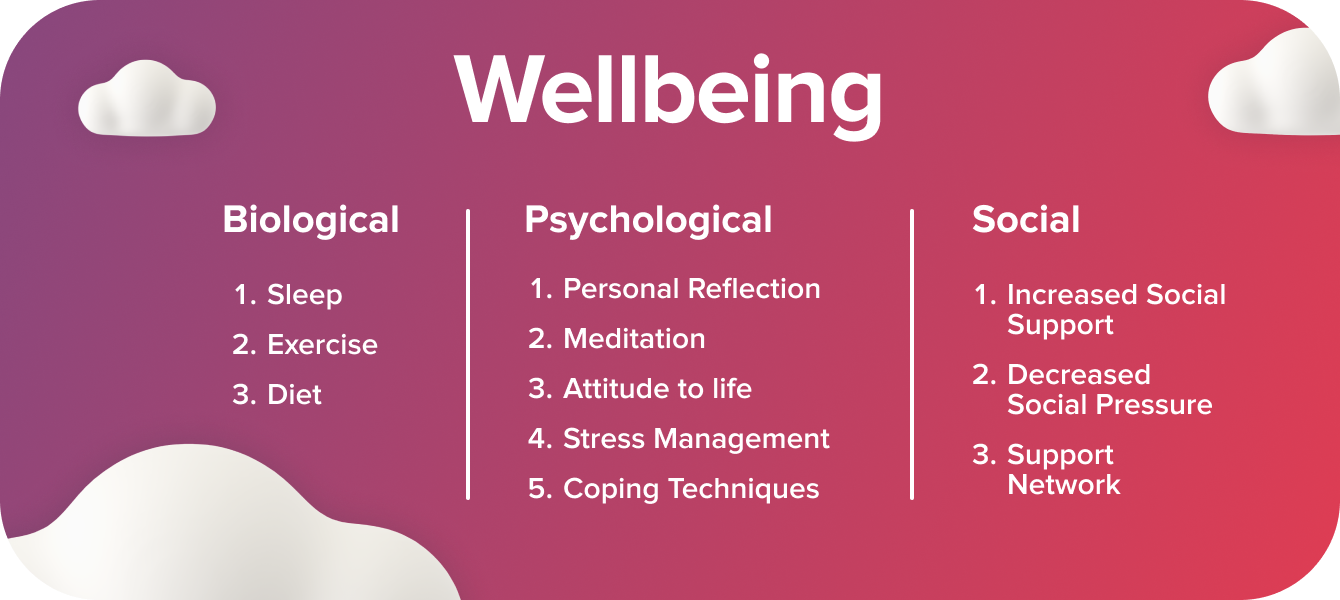
Think of your well-being as a three-legged stool: biological, psychological, and social. Each leg contributes to your overall health.
Biological: This encompasses your physical health – adequate sleep, a healthy diet, and regular exercise. These factors directly influence your energy levels, focus, and stress response.
Psychological: This includes your mental state, emotions, and thinking patterns. Techniques like mindfulness, relaxation exercises, and positive self-talk can enhance your mental well-being.
Social: Strong social connections with family, friends, and colleagues provide support and a sense of belonging.
Feeling the pressure to perform during your prep courses? Don't let it take a toll on your well-being! Our article 7 Wellness Tips During ATPL Prep offers practical strategies to keep your body and mind energised throughout your studies.
Proven Ways to Cope with Mental Health Issues
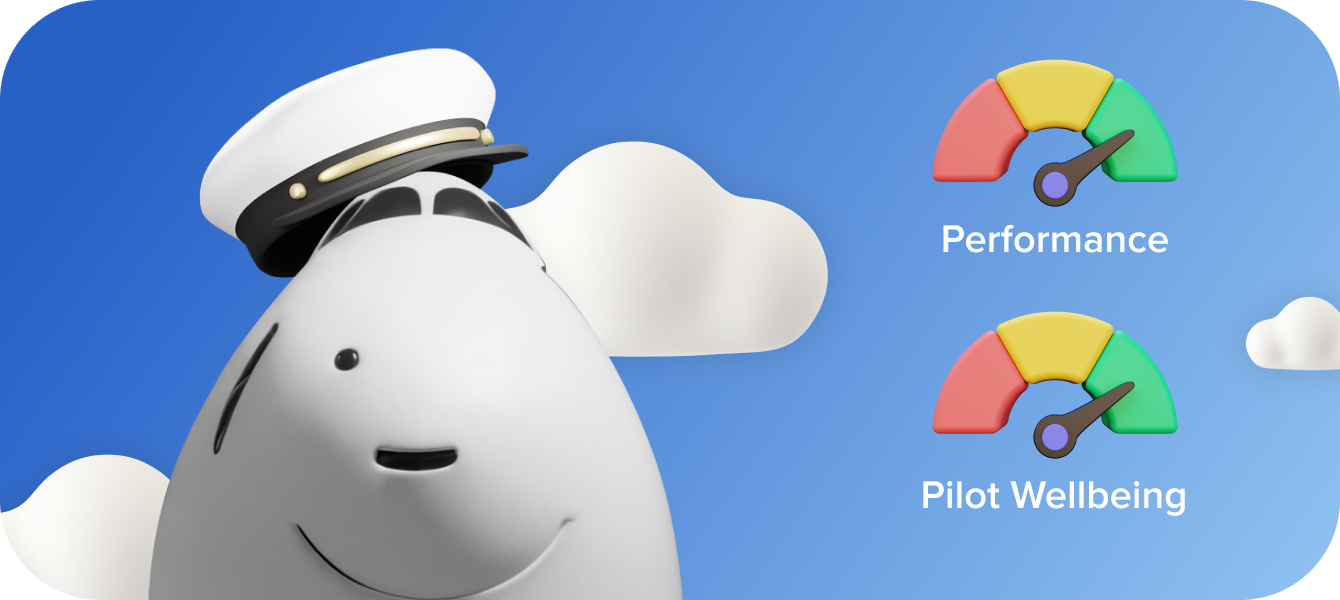
Flying is an awesome adventure, but let's face it, it can also be stressful. That's why taking care of your mental health is just as important as mastering a crosswind landing. Here are some pilot-approved coping mechanisms to keep you feeling on top of your game:
Chill Out Techniques: Mindfulness exercises, deep breathing. Think in through your nose, out through your mouth like you're de-icing the wings, and good old-fashioned time management – these are your stress-fighting weapons.
Healthy Habits for Happy Flying: Eating right, getting enough sleep, and staying active are like regular maintenance checks for your body and mind.
Squad Goals: Don't fly solo! Having strong connections with friends, family, and fellow pilots creates a support system that's always there for you, just like a reliable wingman.
Building resilience against stress is like strengthening the frame of your aircraft – it helps you handle turbulence smoothly and keeps you soaring high. Use these pilot power-ups to keep your mental health in tip-top shape and enjoy the incredible journey ahead!
Getting the Support You Need

Sometimes, even the most skilled pilots need a little extra guidance. Therapy or counselling isn't a weakness, it's a sign of strength and shows you're committed to being the best pilot you can be. Here's your mental health support crew:
Your Pilot Pals: Friends and fellow students understand the pressure you're facing. Talk things out with them, share experiences, and build a support system that keeps you grounded.
Open Up to Your Instructor: Don't be afraid to confide in your flight instructor if you're feeling overwhelmed or stressed. They've seen it all and can offer guidance or connect you with resources. Remember, they want you to succeed!
The Airline Help Desk (For Future You): Many airlines offer confidential support programs specifically for pilots. It's good to know this will be available down the line.
Aeromedical Experts: These specialists are trained to address pilot mental health concerns and can help you navigate medical certification requirements.
Mental Health Professionals: Therapists and counsellors are there to listen without judgement and develop personalised plans to help you manage stress and stay mentally fit to fly.
Employee Assistance Programs (EAPs): Many companies, including potential future employers, offer confidential counselling services for various issues, including mental health.
Professional Pilot Organisations: BALPA (British Airline Pilots Association) and others provide resources and support specifically for pilots.
Online Resources: Websites and forums can be a source of information and peer support from other pilots facing similar challenges.
Takeaway
Maintaining good mental health is vital for aspiring pilots, ensuring both personal well-being and flight safety. By understanding common mental health issues, adopting effective coping strategies, and seeking support when needed, pilots can build a resilient and successful career.
So, take care of yourself, seek help when needed, and soar high with a clear and healthy mind!


